Staff Insights
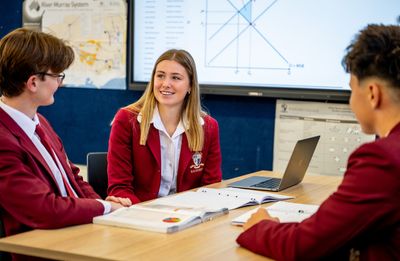
Navigating the AI Frontier
Challenges, opportunities and our commitment
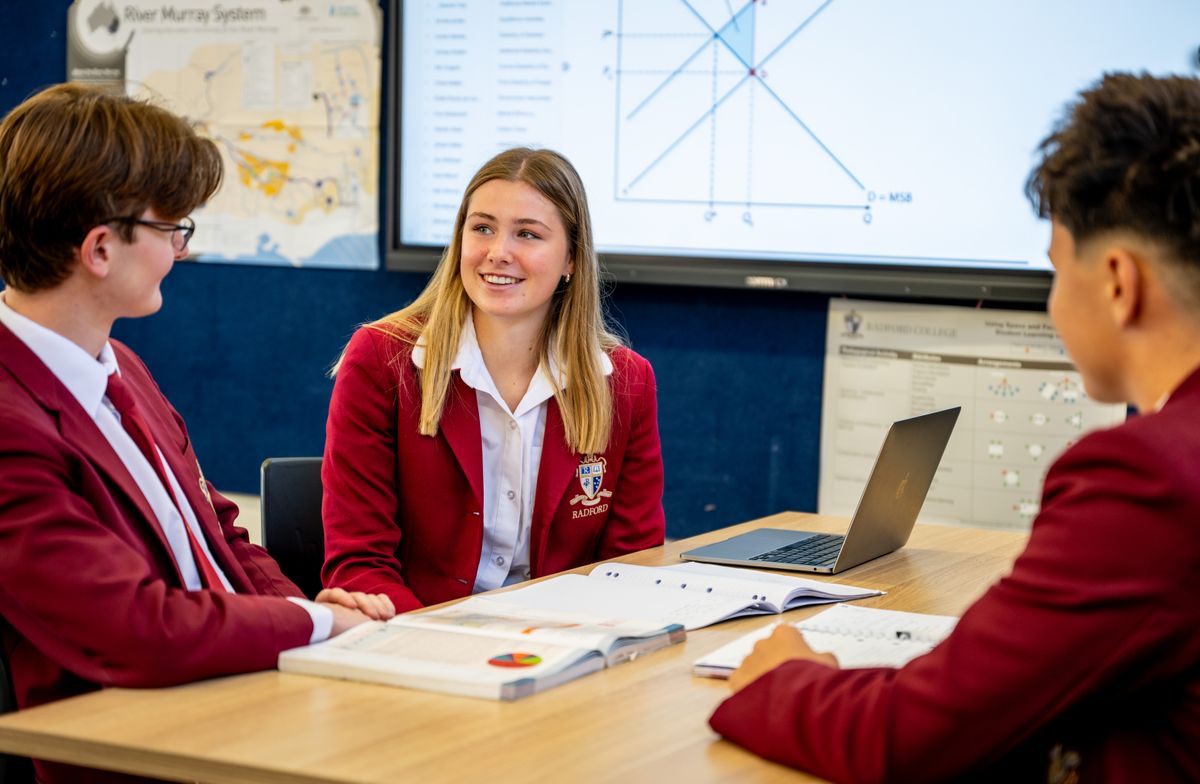
Navigating the AI Frontier
Share this articleBy Mr Christopher Bradbury, Principal
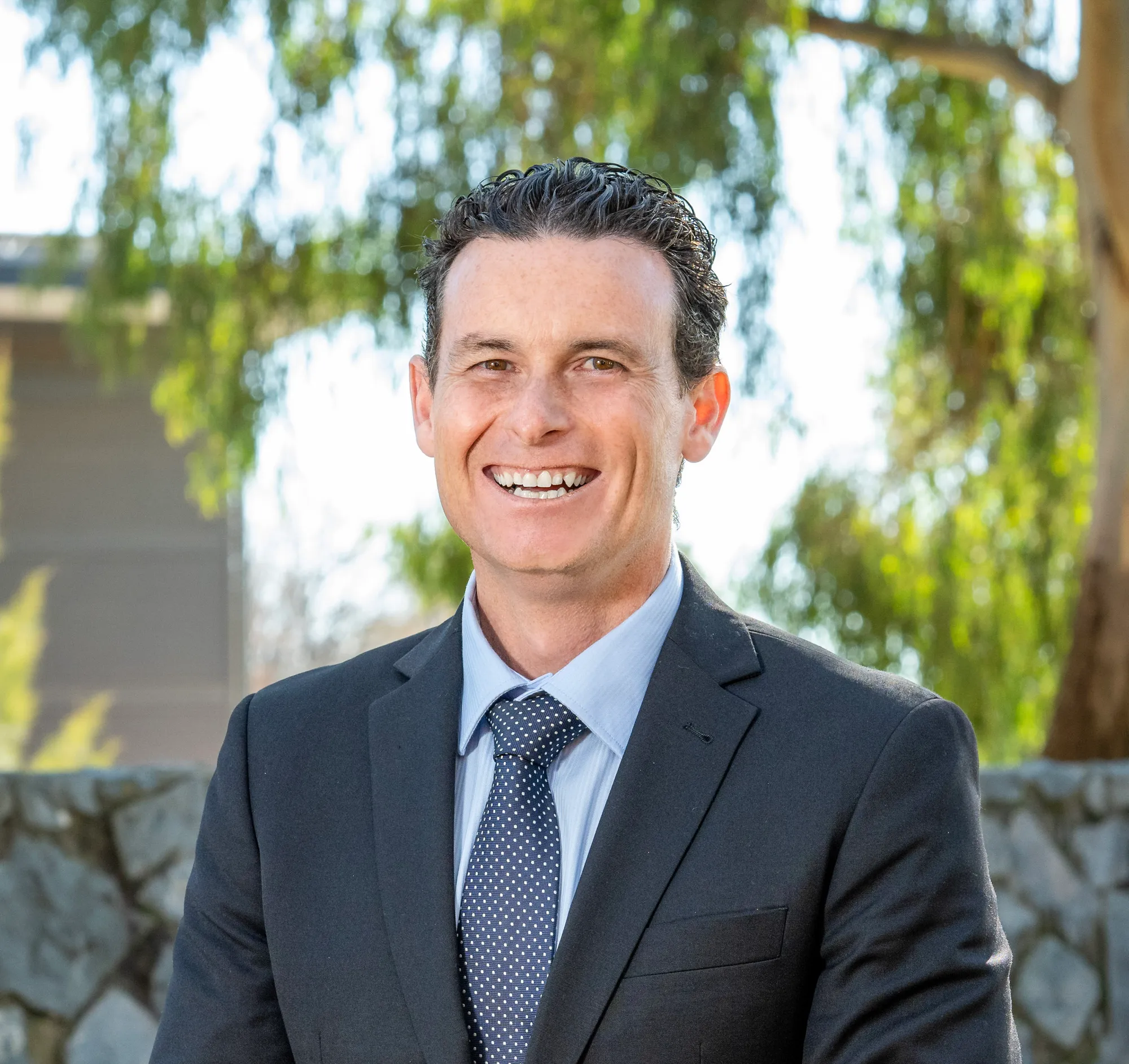
The emergence and rapid evolution of Artificial Intelligence (AI) present one of the most transformative shifts in human history, impacting every facet of our lives – from communication and commerce to healthcare and creativity. As an educational institution committed to preparing young people for a dynamic future, Radford College views AI not as a distant phenomenon, but as a present reality that demands our careful consideration, proactive engagement and thoughtful integration. We recognise both its immense opportunities and its inherent challenges, and our approach is grounded in a commitment to responsible innovation, ethical stewardship and the enduring centrality of human flourishing.
The opportunities that AI presents for education are profound. AI can personalise learning experiences, offering tailored resources and adaptive pathways that cater to individual student needs and learning styles. It can automate administrative tasks, freeing up valuable time for teachers to focus on deeper pedagogical engagement and student mentorship. AI tools can provide instant feedback, assist with research, and even help generate creative ideas, becoming powerful collaborators in the learning process. For our teachers, AI offers unprecedented avenues for professional development, access to vast educational resources, and tools to enhance their pedagogical practice, allowing them to focus on the truly human elements of teaching: inspiration, empathy, and holistic guidance.
However, we must also address the significant challenges and ethical considerations that accompany AI's rise. These include concerns about data privacy and security, algorithmic bias, the potential for misinformation, and the critical question of maintaining human agency and unique intellectual contributions in an AI-assisted world.
At Radford College, our position on AI in teaching and learning is one of informed and ethical integration. We are not advocating for the wholesale replacement of traditional learning methods, but rather for the strategic adoption of AI tools as powerful accelerators and enhancers. We aim to equip our students with the AI literacy necessary to understand how these technologies work, to evaluate their outputs critically, and to use them responsibly as tools for creativity, research, and problem-solving. This means fostering skills such as prompt engineering, data interpretation, and the ability to discern valid information from AI-generated content.
In terms of building professional practice, we are actively supporting our staff in understanding AI's implications and capabilities. This involves ongoing professional learning that explores AI tools, ethical frameworks for their use, and strategies for integrating them effectively and responsibly into their teaching methodologies. Our teachers are encouraged to experiment, share best practices, and collectively navigate this evolving landscape, ensuring they remain at the forefront of educational innovation while upholding our core values.
Maintaining academic integrity with assessment in the age of AI is a paramount concern. While AI tools can assist in learning, we are resolute in ensuring that assessment truly reflects a student's own understanding, critical thought, and unique voice. This requires evolving assessment strategies to focus more on higher-order thinking, creative application, real-world problem-solving, and the demonstration of process rather than just product. It also necessitates open conversations with students about the ethical boundaries of AI use, promoting honesty, intellectual ownership, and the understanding that AI is a tool to augment, not to replace, genuine learning.
The intersection of AI with human and social well-being is also critical. As AI becomes more pervasive, it is vital that our students understand its potential impact on human connection, mental health and social dynamics. We will continue to emphasise digital citizenship, media literacy and the importance of balancing online engagement with authentic human interaction. Our pastoral care framework will remain vigilant in supporting students to navigate the psychological and social implications of an AI-driven world, fostering resilience, empathy, and a strong sense of self.
Finally, the discussion around AI invariably leads to accountability for schools and human responsibility, alongside crucial considerations of privacy, security and safety. As a college, we bear the responsibility for implementing AI technologies in a manner that protects student data, ensures equitable access and promotes a safe digital environment. This requires robust policies, transparent practices and ongoing vigilance against potential misuse or unintended consequences. Ultimately, while AI offers incredible capabilities, the human element – our ethics, our judgment and our values – must remain at the core of how we harness this technology for the betterment of our students and society.
Radford College is committed to embracing the future with foresight and integrity. By thoughtfully navigating the AI frontier, we aim to prepare our students not just to adapt to change, but to actively shape a future that is intelligent, ethical and profoundly human.
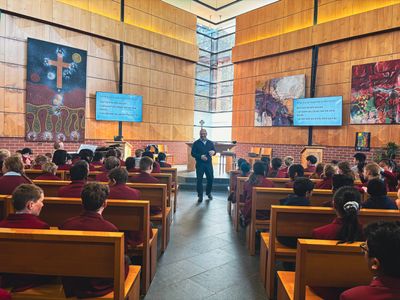
A neighbourly attitude
What is means to be a good Samaritan
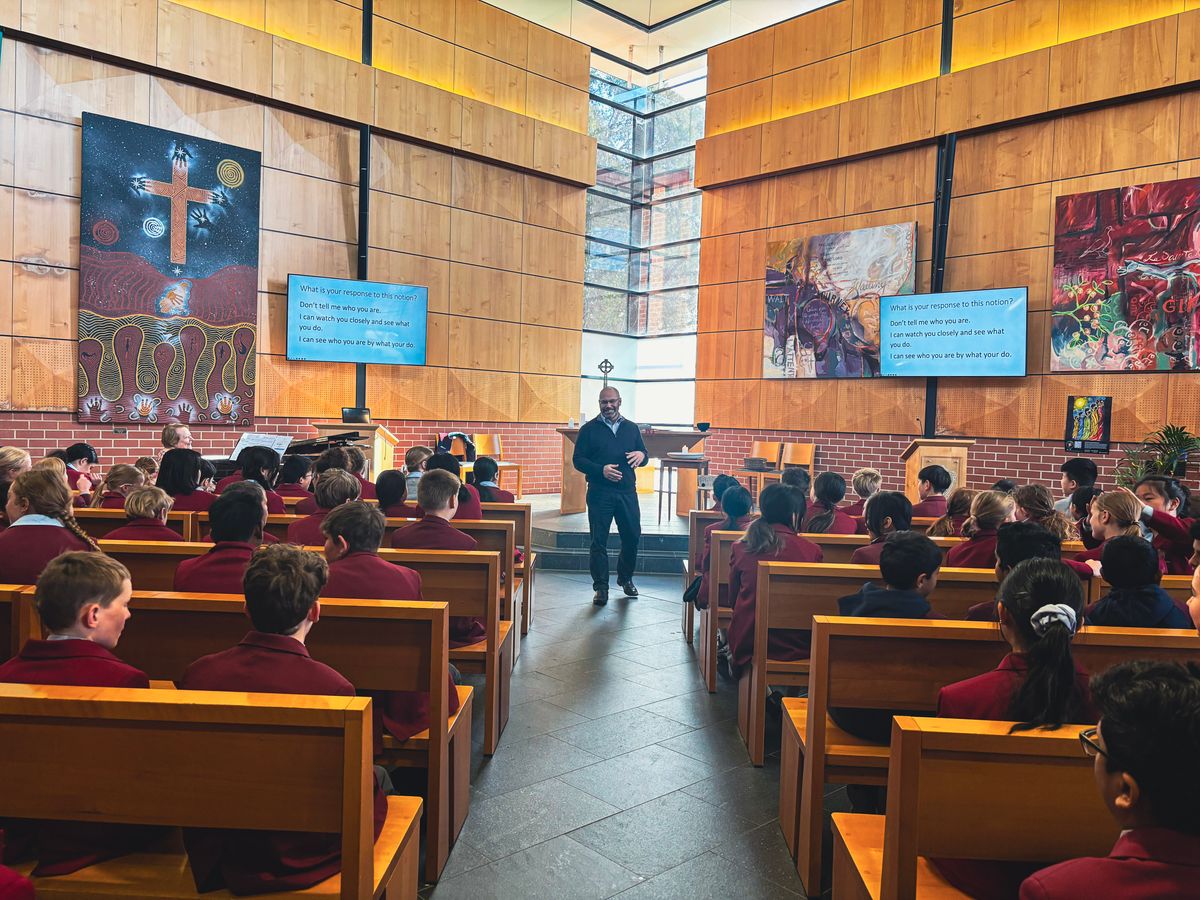
A neighbourly attitude
Share this articleBy Reverend Andy Fleming, Associate Chaplain
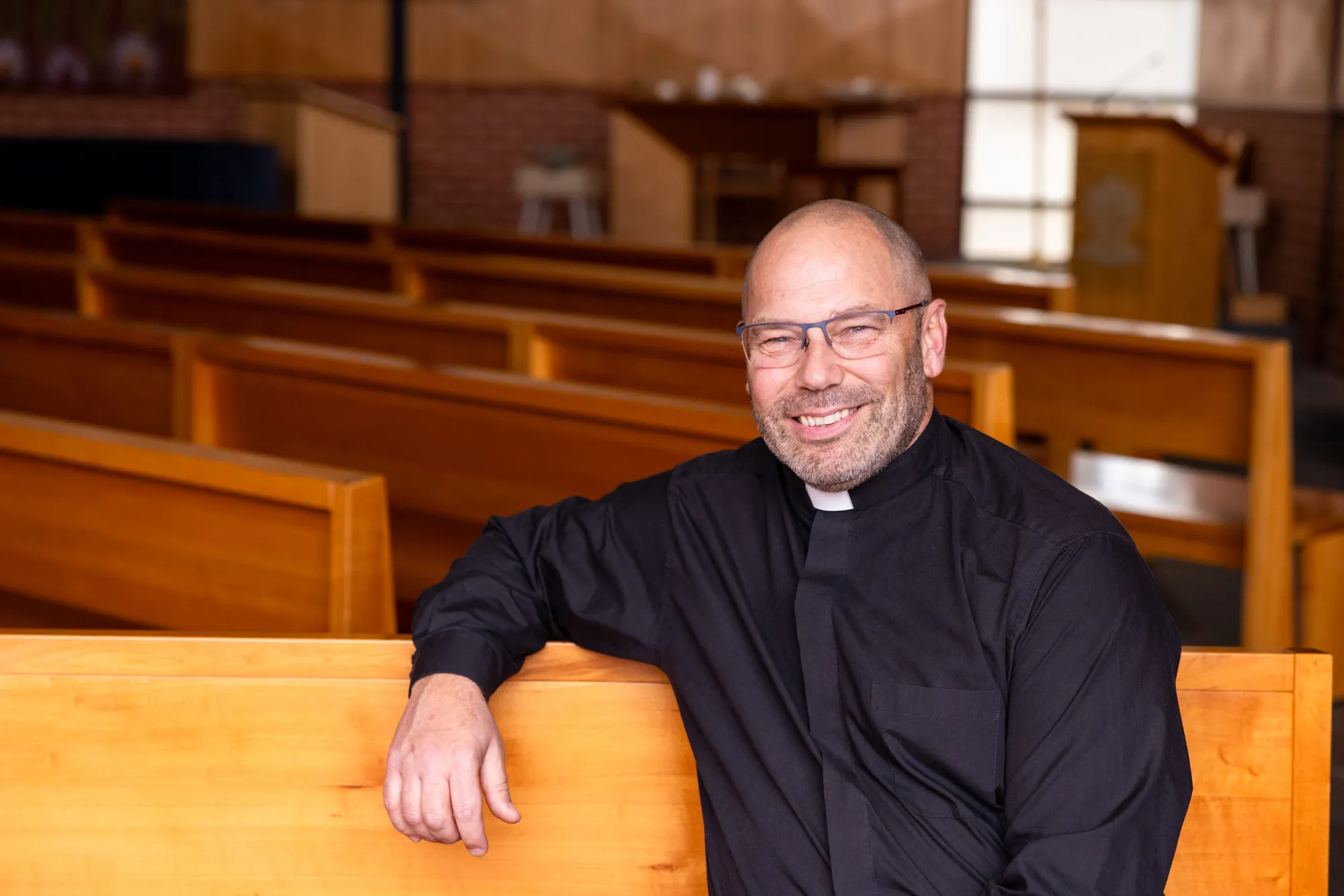
During the holidays, I was asked to reflect on the Parable of the Good Samaritan. This was timely given that at the end of last Semester, my Year 8 RaVE class had researched modern examples of ‘Good Samaritanism’ in the wider community, and also the school’s amazing response to the Anglicare Winter Pantry Appeal.
On this occasion, the attitude of the lawyer struck a nerve. The Good Samaritan episode begins with Jesus being tested by a lawyer about what he must do to gain eternal life. The lawyer is deemed to be an expert in that he knows the Hebrew laws – he can read them and articulate them. Jesus points out that this is not enough, and that one must live out the law by doing. Throughout his questioning the judgemental nature of the lawyer is never far away. Like many Christians, the lawyer was searching for the limits over who should be considered a neighbour, but Jesus refuses to set any limits.
In telling the parable, Jesus uses a priest and a Levite in a negative light to make the point that no one is so important that they shouldn’t help people in need – the law actually dictates that your attitude should be to help out of your love for God. Neither the priest nor the Levite help the wounded man, even though we would expect them to be the type of people who would do so.
Despite their centuries-long dispute with the Jews, the Samaritan ends up being the one who helps the wounded man. He doesn’t see him as a Jew, an enemy, or a threat. Rather, he simply sees him as a person in need and therefore a neighbour.
Through the actions of the Good Samaritan, Jesus is challenging us to consider the question: How do I love my neighbour? Jesus teaches that a neighbour goes above and beyond in caring for those in need.
The act of neighbouring, like love, does not have a limit.
Through this episode, Jesus invites us to find a way to love in spite of the barriers of our ethnic heritage, our politics, our socio-economic status, how we identify ourselves in our society, and even our religious identity. Jesus invites us to set aside our judgements and focus on our common and shared human need. When we do, we not only discover how to be a neighbour, but that we have neighbours all around.
Go in peace,
Rev. Andy
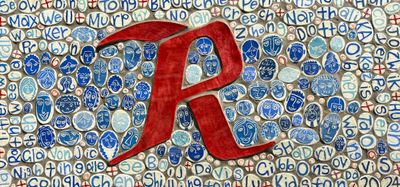
What's happening this month
Details of our upcoming events
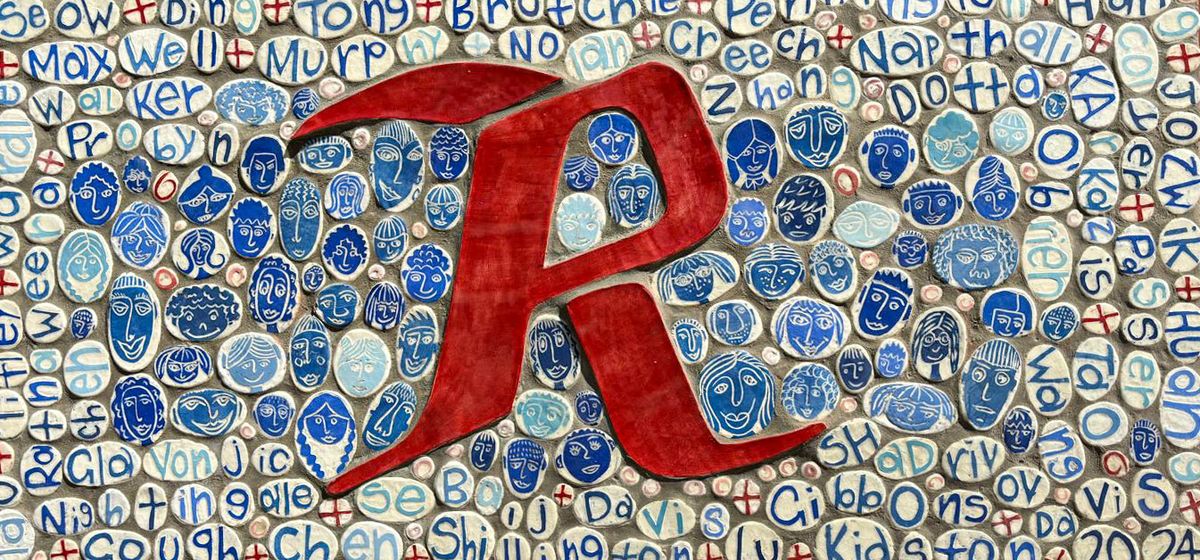
What's happening this month
Share this article- Year 12 Revue – Tonight and tomorrow – 7.00 pm – T.B. Millar Hall – Get your tickets here
- Winter Concert – Thursday, 31 July – 5.30 pm – T.B. Millar Hall – Free entry, no tickets required
- Kindergarten – Year 4 Piano Recital – Tuesday, 5 August – 5.30 pm – R.A. Young Hall
- Collegians vs Year 12 Soccer match (Game #2) – Thursday, 7 August – 1.00 pm – J.A. Mackinnon Oval
- Years 9 and 10 Production – 14, 15 and 17 August – 6.00 pm – T.B. Millar Hall
- Dirrum Dirrum Festival – Saturday, 16 August – 4.00 pm–8.00 pm – Get your tickets here
- Kindergarten – Year 4 Instrumental and Vocal Recital – Tuesday, 19 August – 5.30 pm – R.A. Young Hall
News
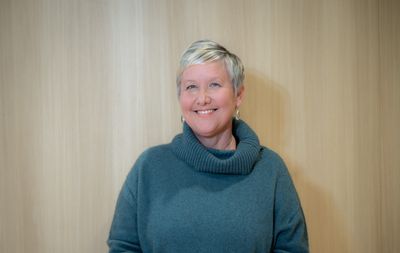
In the spotlight
Head of Performing Arts, Ms Sally Stenning
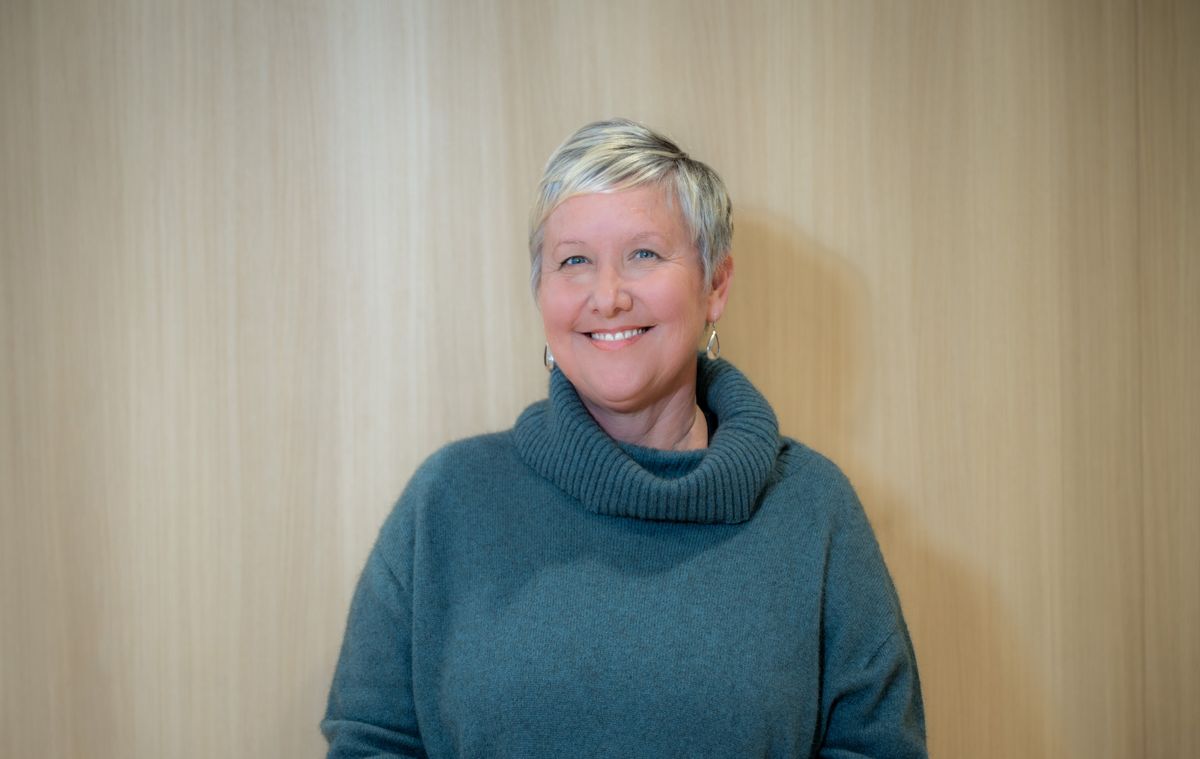
In the spotlight
Share this articleBy Ms Sally Stenning, Head of Performing Arts
Our key focus in the Performing Arts curriculum at Radford College is to foster service, collaboration and leadership through creative endeavour and play. We are committed to cultivating an inclusive culture where staff and students feel confident taking creative risks and are inspired to pursue excellence.
We value the journey as much as the final product and understand that through the Performing Arts students discover and develop a clearer understanding not only of what they can do, but more crucially who they can be. Through Music, Dance, Drama, and Technical Theatre, students are safe to hone their unique talents and use these gifts for the betterment of others.
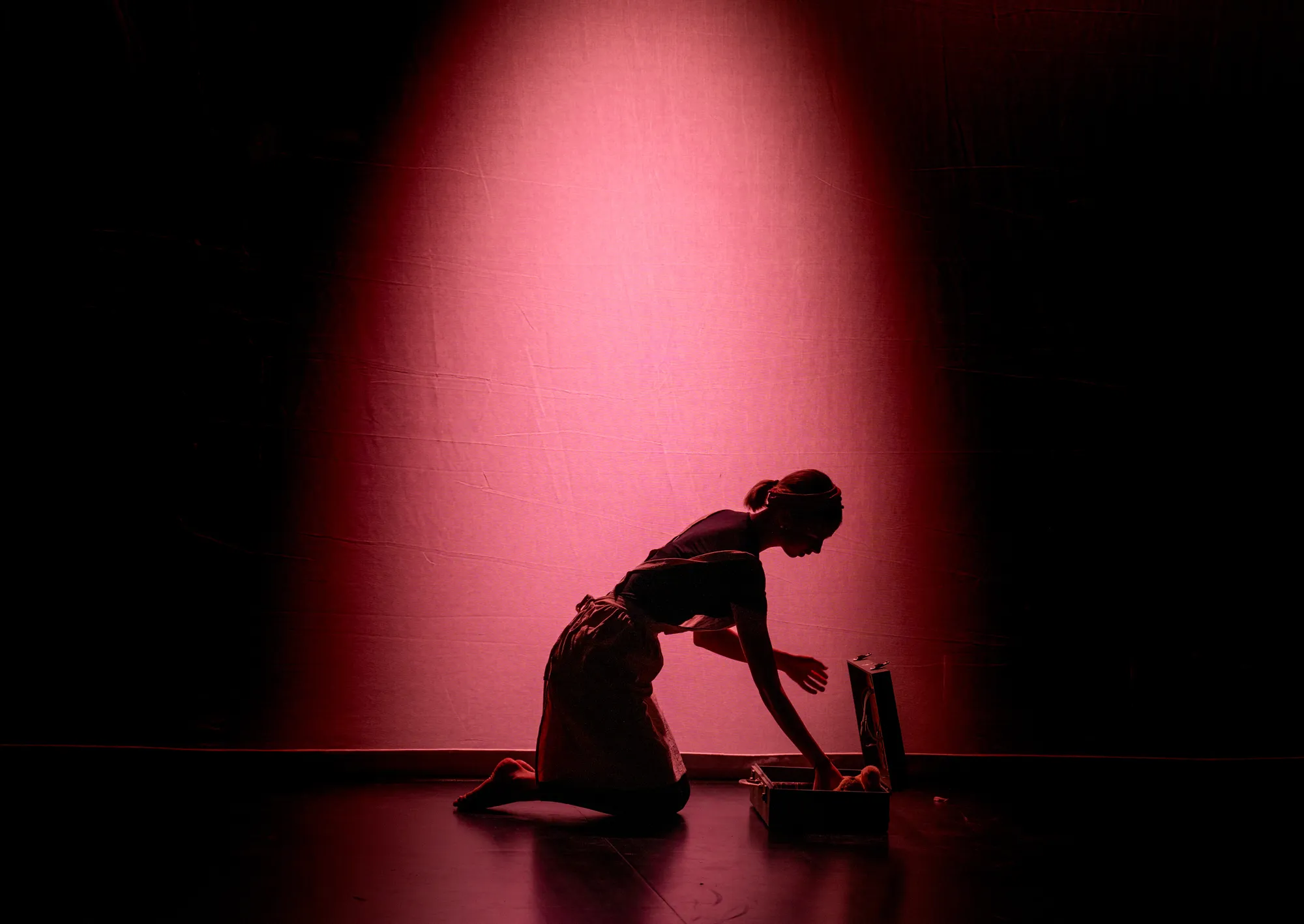
A key focus in our classrooms is fostering strong links with Service Learning. In Music and Dance, students regularly visit the Calvary Haydon Retirement Community, using performance as a vehicle for compassion and community engagement. Students in Drama create and share work for and in collaboration with our Junior School students as a means to deepen their engagement and understanding of key units of inquiry. Moving forward, we are keen to build on these wonderful opportunities as they provide rich learning and deep connections and understanding across our community.
We promote collaboration not only through service but also across classroom and co-curricular domains. Recent highlights have included Musical Theatre Evenings, Dance Festival, various productions and our recent Performing Arts Showcase Evening, in which our students shared their work as chorographers, directors and musicians as they delved deeply into units of work with a focus on creativity and innovation.
Our students also have a myriad of opportunities to work alongside professional artists. In the first semester we have worked with music lecturers, dance companies and world class puppeteers to build the knowledge and skills of our students.
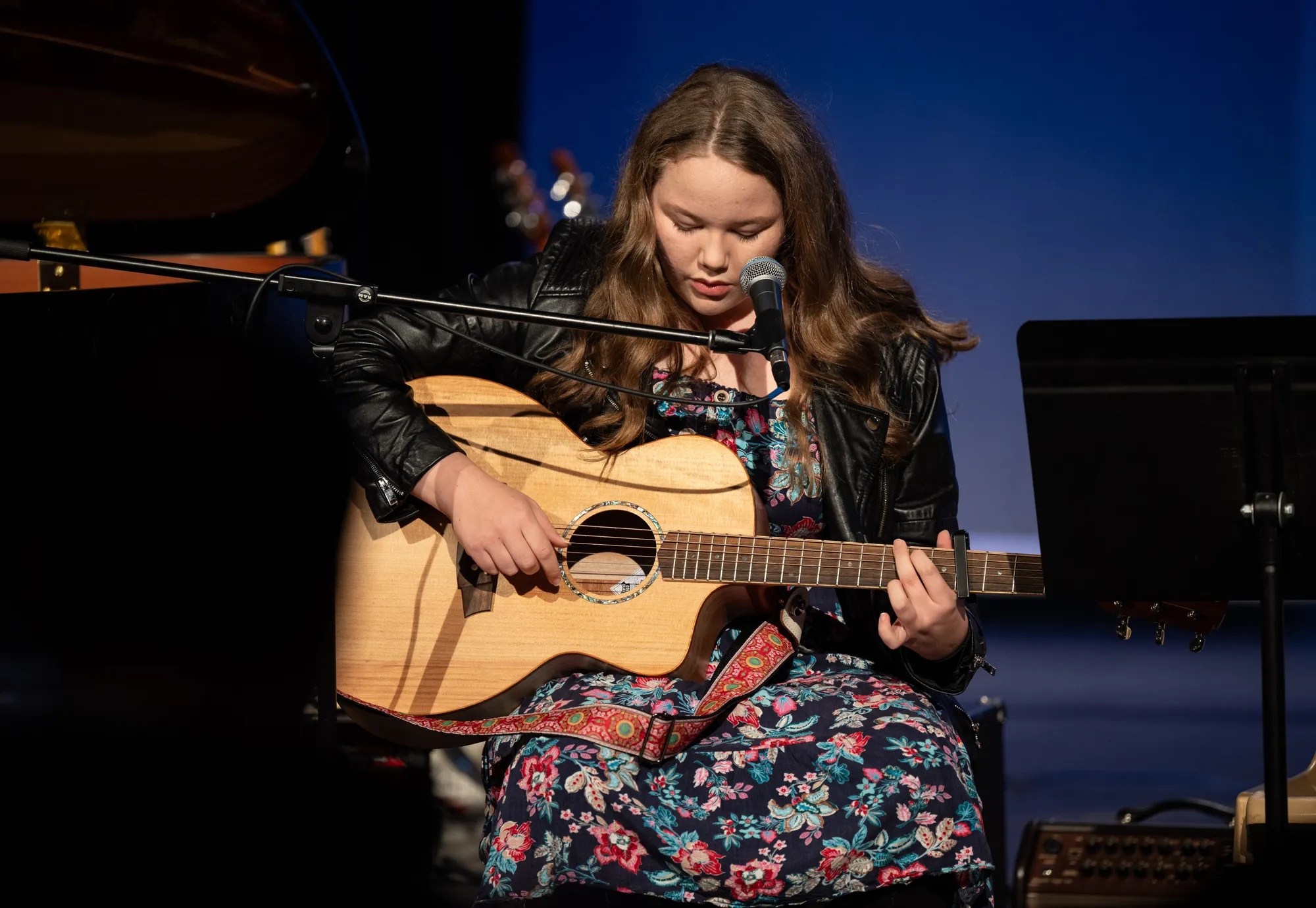
Finally, we have a strong commitment to building the leadership capacity in our students. Our students develop vital 21st-century skills through learning experiences that build communication, collaboration, creative problem solving and adaptability. More specifically, we are implementing projects that enable our senior students to take on leadership roles in directing, designing, choreographing and composing works for their junior counterparts. The upcoming Years 7 and 8 Production ‘Grimm’s Tales’ is one example of such a collaboration.
We are blessed to work with such wonderful students. We extend a warm invitation to the entire community to come and experience the joy of the Performing Arts here at Radford College.
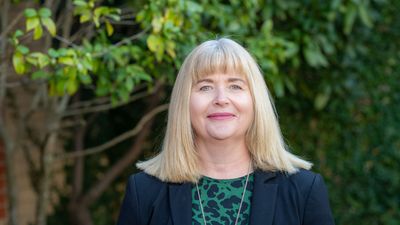
Five minutes with Mrs Simone Yates
Registrar, parent and proud member of the Radford community
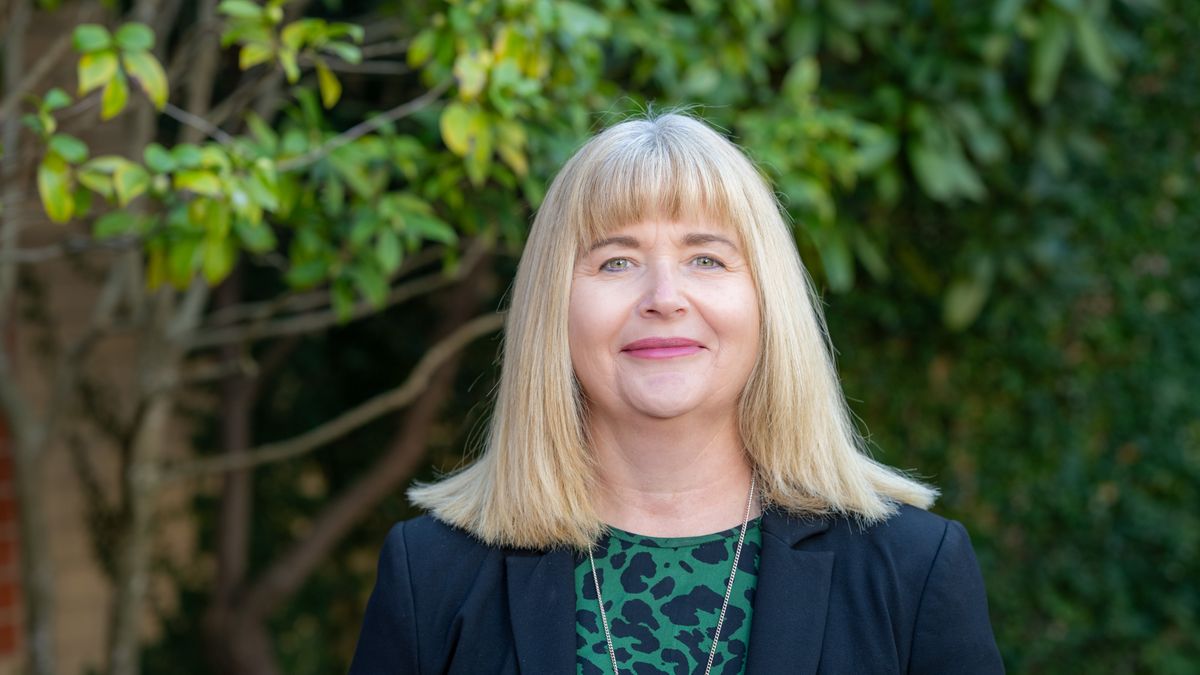
Five minutes with Mrs Simone Yates
Share this articleRadford College Registrar, Mrs Simone Yates, is one of our longest-serving and most respected team members. Having joined the College in June 2016, Simone celebrates nine years of dedicated service this year. But her connection to Radford runs even deeper – as both an employee and a parent, Simone has a unique insight into what makes our community special. That insight becomes especially meaningful as she welcomes prospective families – in what is often their very first connection to the Radford community – with warmth, empathy and deep understanding.
This year marks your nine-year anniversary at Radford Colleges. Over the years, you've experienced the College both as a dedicated staff member and as a parent. Reflecting on this unique dual perspective, what are the three things you’ve come to appreciate most about the Radford community?
Radford College has been a big part of my life for the past nine years. It’s where I’ve worked and where my three children have gone to school. Being both a staff member and a parent has been a special experience. It’s given me the privilege of seeing the College from both perspectives, helping me truly understand and appreciate our community.
Three things I’ve come to value most are: being part of a school that is always evolving, the opportunities I’ve had to grow professionally, and the chance to contribute to the educational journeys of so many families, including my own.
As the College Registrar, you’re often the first person our families speak to as they begin their journey with us. What’s your favourite fact to share about the school?
One of my favourite things to share is how welcoming and supportive the Radford College community is. From the moment families contact us – whether over the phone or when walking into reception – they’re met with genuine care and kindness. I also love highlighting the breadth of opportunities available to students at Radford.
What does a typical day look like for you as the College Registrar?
Busy and sometimes frantic! A day can include walking the campus with a prospective family, managing a full inbox, preparing enrolment interview packs, updating student data and responding to phone calls, walk-ins and emails. With around 250 new enrolments each year and a robust waitlist to manage, there’s always something happening.
What did you do prior to joining Radford College?
I worked in hotel management, facilities management and international tertiary student management.
Coffee or tea?
Tea - peppermint, please! I dislike the taste and smell of coffee, which makes me a bit of an outsider in my household of devoted coffee lovers.
Favourite spot on campus?
My office. I love the large windows and the green outlook. I often spot critters – and occasionally something slithery – passing by!
Best piece of advice you’ve ever received?
Don’t forget to breathe. Work-life balance can be tricky, especially during peak enrolment times. That simple advice has really helped me over the years.
People would be surprised to know that …
My final interview for the Registrar role at Radford College took place in the Qantas Club Lounge at Adelaide Airport!
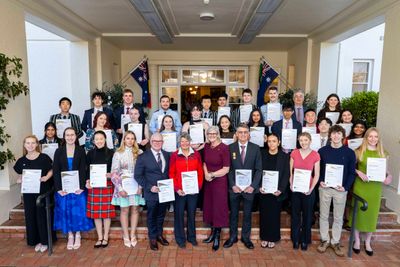
Gold Duke of Edinburgh’s Award Ceremony at Government House
Celebrating outstanding achievement and resilience
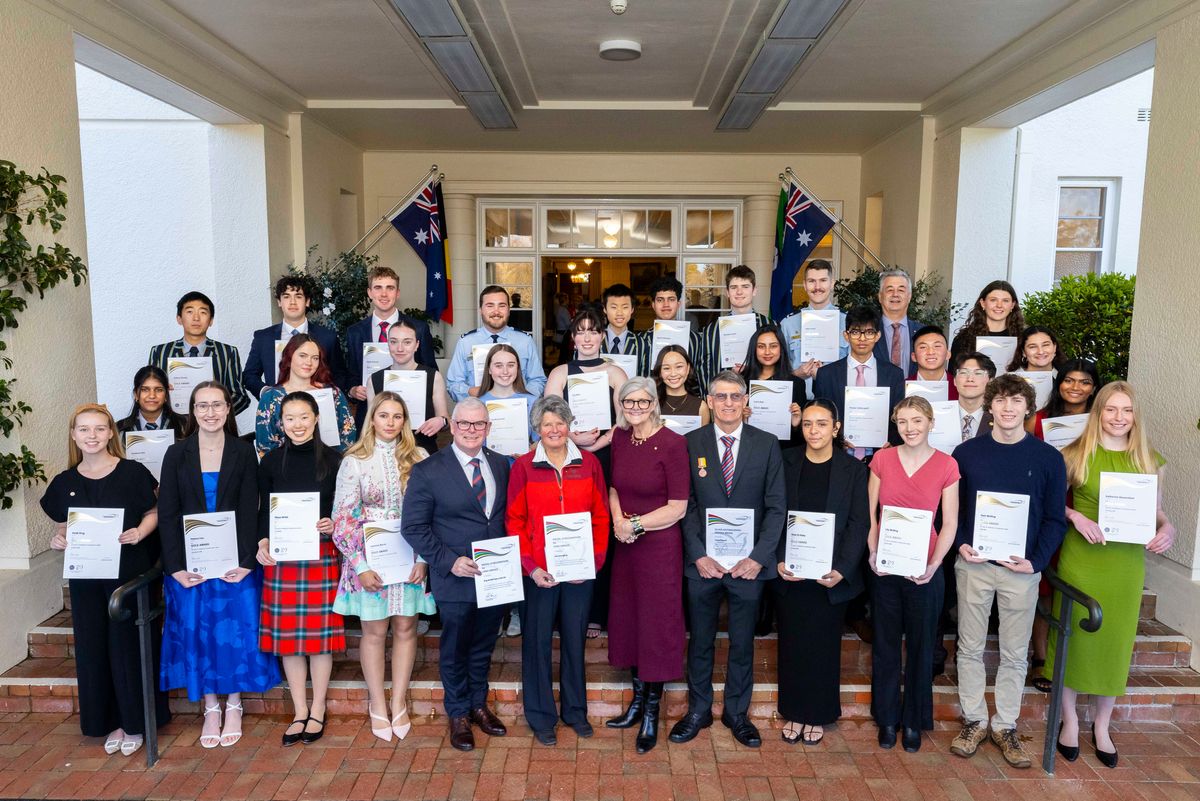
Gold Duke of Edinburgh’s Award Ceremony at Government House
Share this articleBy Mrs Sue Hassall, Award Leader
On Sunday, 7 July, three of our outstanding young leaders were formally recognised at the Gold Duke of Edinburgh’s International Award ceremony held at Government House, Canberra. The Governor-General, Her Excellency The Honourable Ms Sam Mostyn AC, warmly congratulated the awardees and commended them on their dedication, perseverance and contribution to their communities.
We are incredibly proud to announce that Jeffrey Pei (Year 12), along with Pranav Vallurupalli and Xavier Sassu (both Class of 2024), achieved their Gold Duke of Edinburgh’s Award—an internationally recognised and highly respected accomplishment.
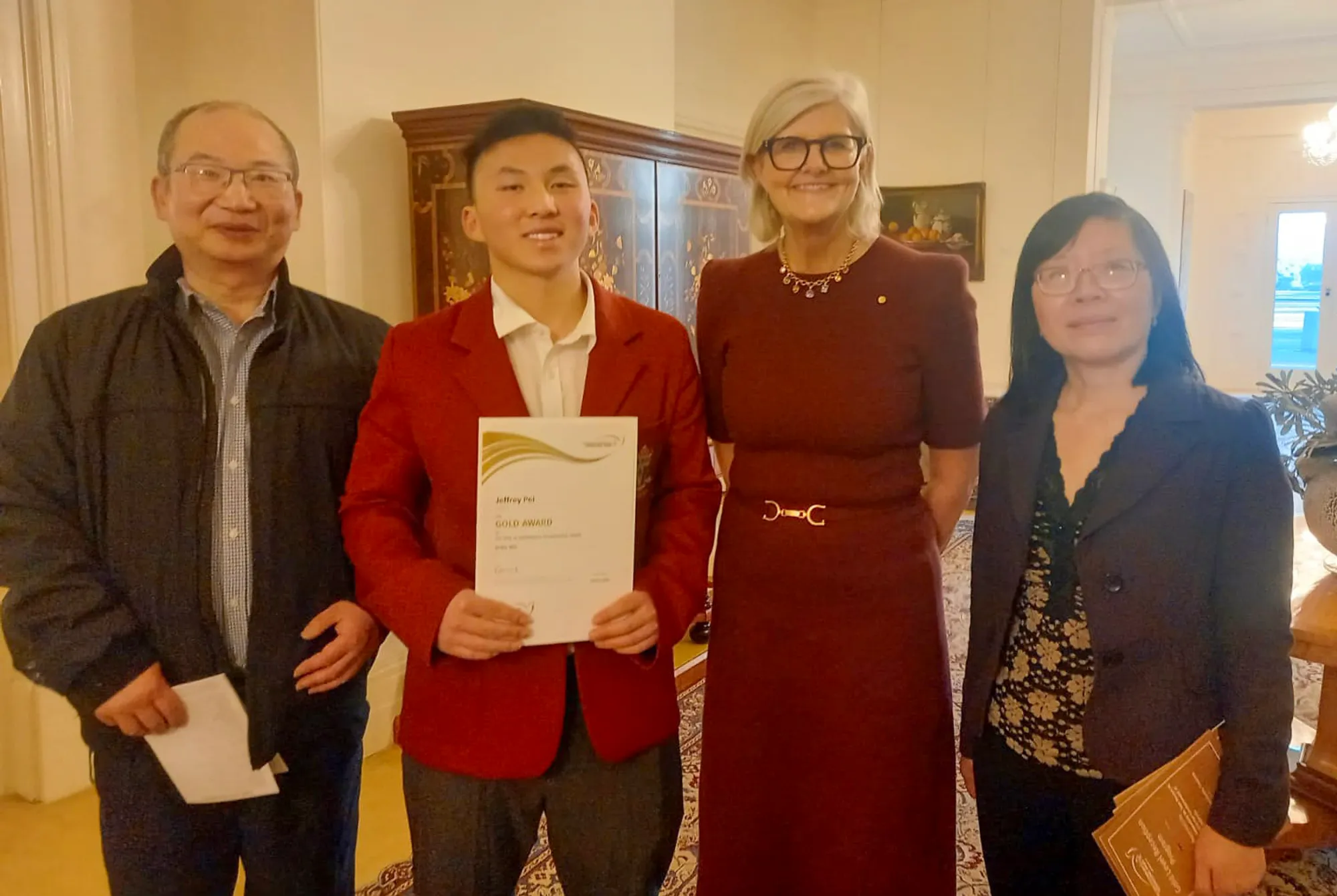
The journey toward the Gold Award typically begins in Year 9, when students first undertake the Bronze Award, committing to six months of development with a weekly hour of service, skill and physical recreation. After successfully completing the Silver Award, students move onto the challenging Gold Award which involves a minimum of 12 months of weekly commitment across the three core areas. Additionally, they must complete a training and qualifying Adventurous Journey, as well as a multi-day Residential Service project, often involving work in unfamiliar environments and with new people.
Achieving a Gold Award is a mark of resilience, commitment and grit. It demands long-term dedication, strong organisational skills, and the courage to step outside one’s comfort zone. We commend Jeffrey, Pranav and Xavier not only for their achievement but also for the role they model to younger students.
We also extend our encouragement to all students currently working toward their Bronze, Silver or Gold Awards. The journey is long, but the rewards—personal growth, leadership skills, and a lasting sense of accomplishment—are invaluable.
Congratulations once again to our three recipients on this outstanding achievement!
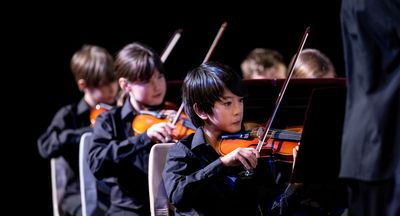
Winter Concert
Don't miss one of our major annual music events on Thursday 31, July
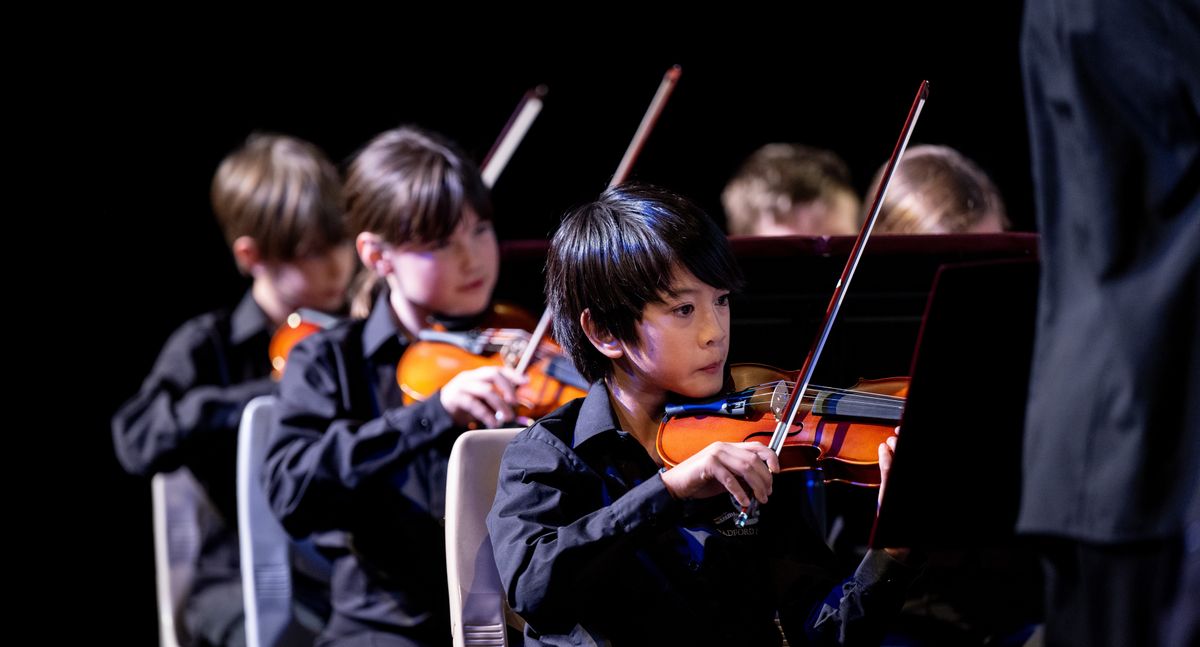
Winter Concert
Share this articleBy Mrs Kirsten Knight, Head of Co-curricular Music
The Winter Concert is one of our major annual music events, featuring nine of our co-curricular music groups.
This year's concert is on Thursday, 31 July, from 5.30 pm in the T.B. Millar Hall.
The groups performing include:
- Mozart String Orchestra
- Vivaldi String Orchestra
- Hendrix Guitar Ensemble
- Zappa Guitar Ensemble
- Warblers
- Chorale
- Camerata
- Holst Concert Band
- Omo Wewe
These groups have been working hard to prepare for this event, which promises to be an exciting celebration of music at Radford College.
Entry for this event is free, and tickets are not required.
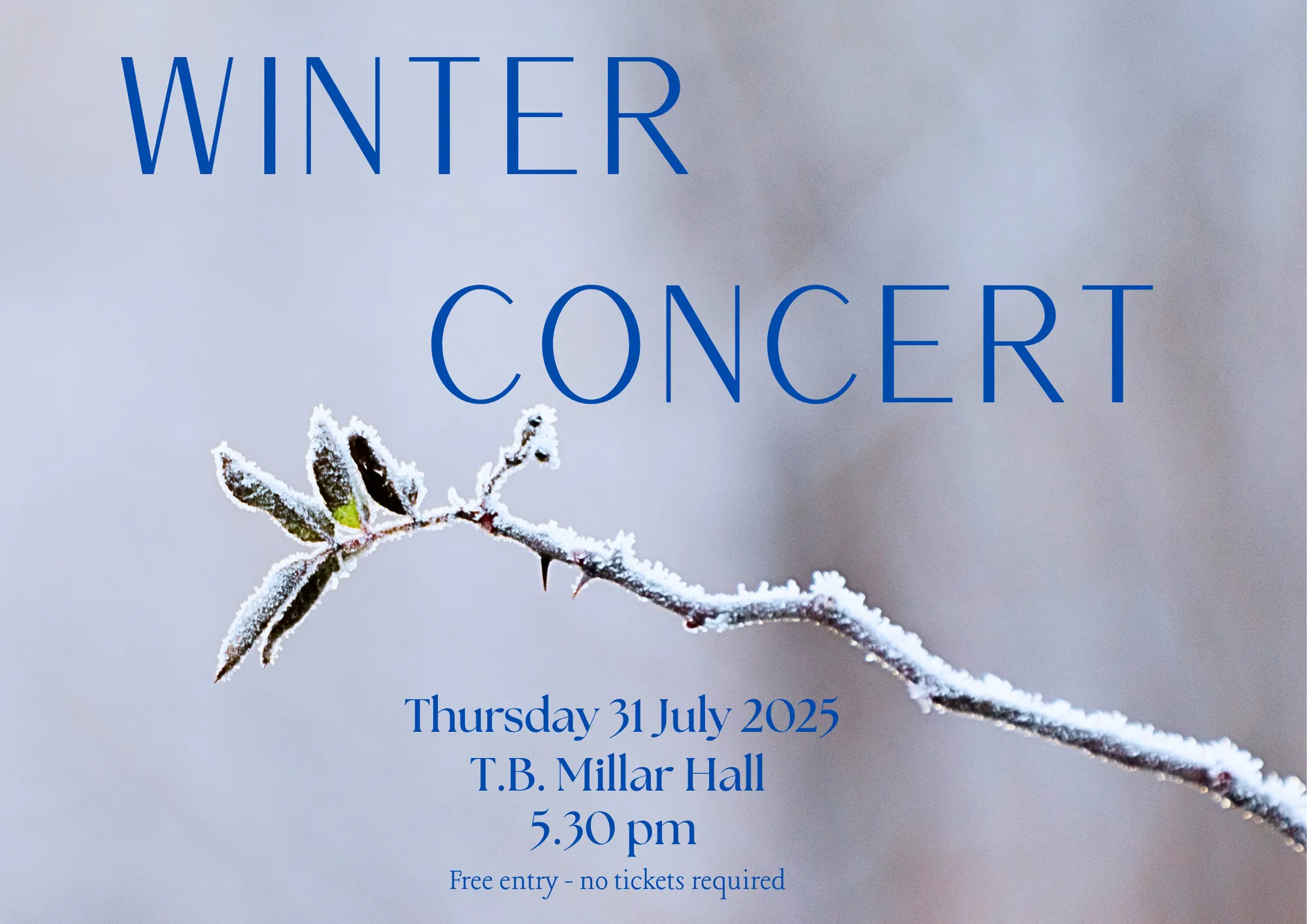
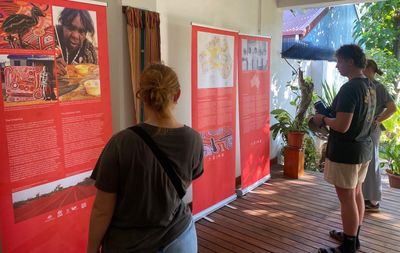
Celebrating NAIDOC Week
The Next Generation: Strength, Vision and Legacy
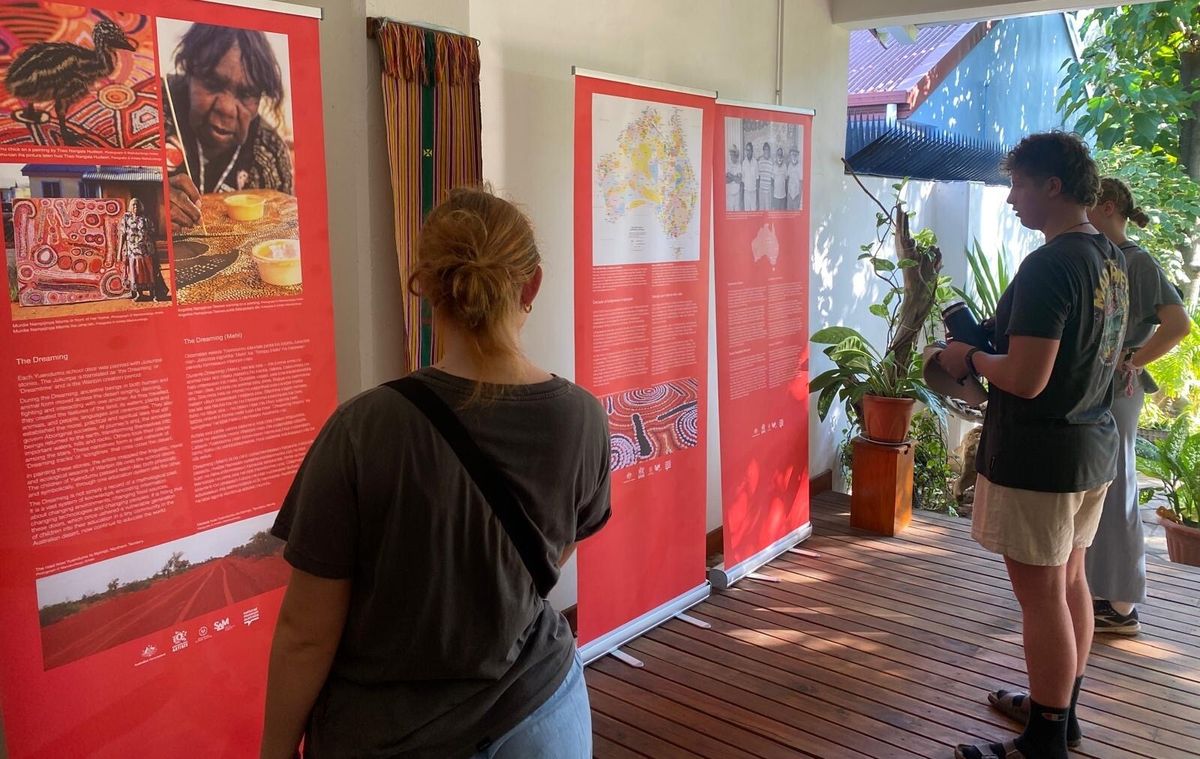
Celebrating NAIDOC Week
Share this articleBy Reverend Dr Katherine Rainger, Senior Chaplain
National NAIDOC Week celebrations are held in the first week of July each year (Sunday to Sunday), to celebrate and recognise the history, culture and achievements of Aboriginal and Torres Strait Islander peoples. NAIDOC Week is an opportunity for all Australians to learn about First Nations cultures and histories, and participate in celebrations of the oldest, continuous living cultures on earth.
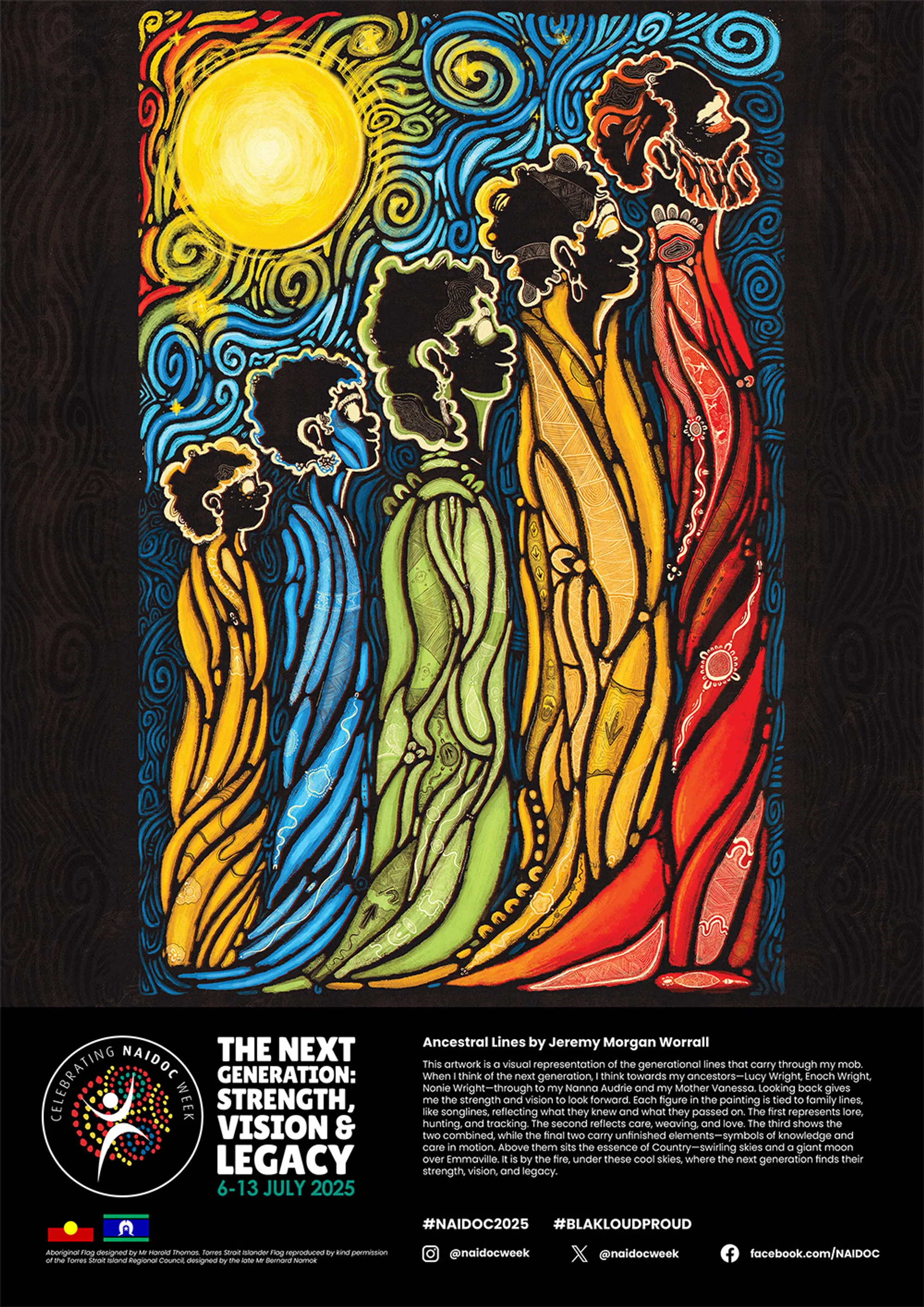
This year’s NAIDOC week theme was The Next Generation: Strength, Vision and Legacy. In Canberra, throughout Australia and overseas there were many community events and ways to engage with this theme that emphasises empowerment and connection.
While in Timor-Leste, some of our students had the opportunity to engage with a NAIDOC exhibition entitled Yuendumu Doors. The exhibition was facilitated by the Australian Embassy in Timor-Leste and hosted by the Galeria Memoria Viva in Dili, a museum dedicated to the life and work of President José Ramos-Horta.
We hope all First Nations people who are part of the Radford community had a great NAIDOC Week.
NAIDOC Week may be over, but there are still meaningful ways to continue to engage:
- Wiradjuri woman Jodie Munday, who is the Aboriginal Artist in Residence at Radford College, held an art exhibition alongside Aboriginal artist Gail Neuss titled Wrong Side of the Tracks in Gunning, NSW. Jodie and Gail’s incredible artworks and an interview can be viewed here.
- Wakka Wakka woman Brooke Prentis is an Aboriginal Christian leader and cultural consultant and educator. Brooke works with staff and students at Radford College embedding Aboriginal perspectives in the classroom and sharing culture. During NAIDOC Week Brooke interviewed Yaegl Elder and Anglican priest Reverend Canon Aunty Lenore Parker and her daughter, award winning artist Frances Belle Parker on Radio National’s Soul Search. It is a fascinating podcast exploring faith, spirituality, art and family.
- Read about the NAIDOC Week 2025 award winners. Each winner is leading the way in a range of fields.
- Visit the incredible cultural institutions we have in the ACT, including the National Museum of Australia, and engage with permanent and special exhibitions.
- Sign up to Dirrum Dirrum Festival to hear from journalist and author Stan Grant, singer Royston Noell and founder of Wurramay Collective, Tash Kaiser.
- Read the artist statement for this year’s NAIDOC Week poster titled Ancestral Lines by Jeremy Morgan Worrall.
- Students will have the opportunity to engage with NAIDOC Week in chapel services.
.
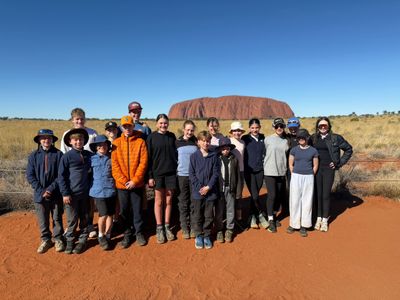
A journey of awe and wonder
Learning about walking gently in Central Australia
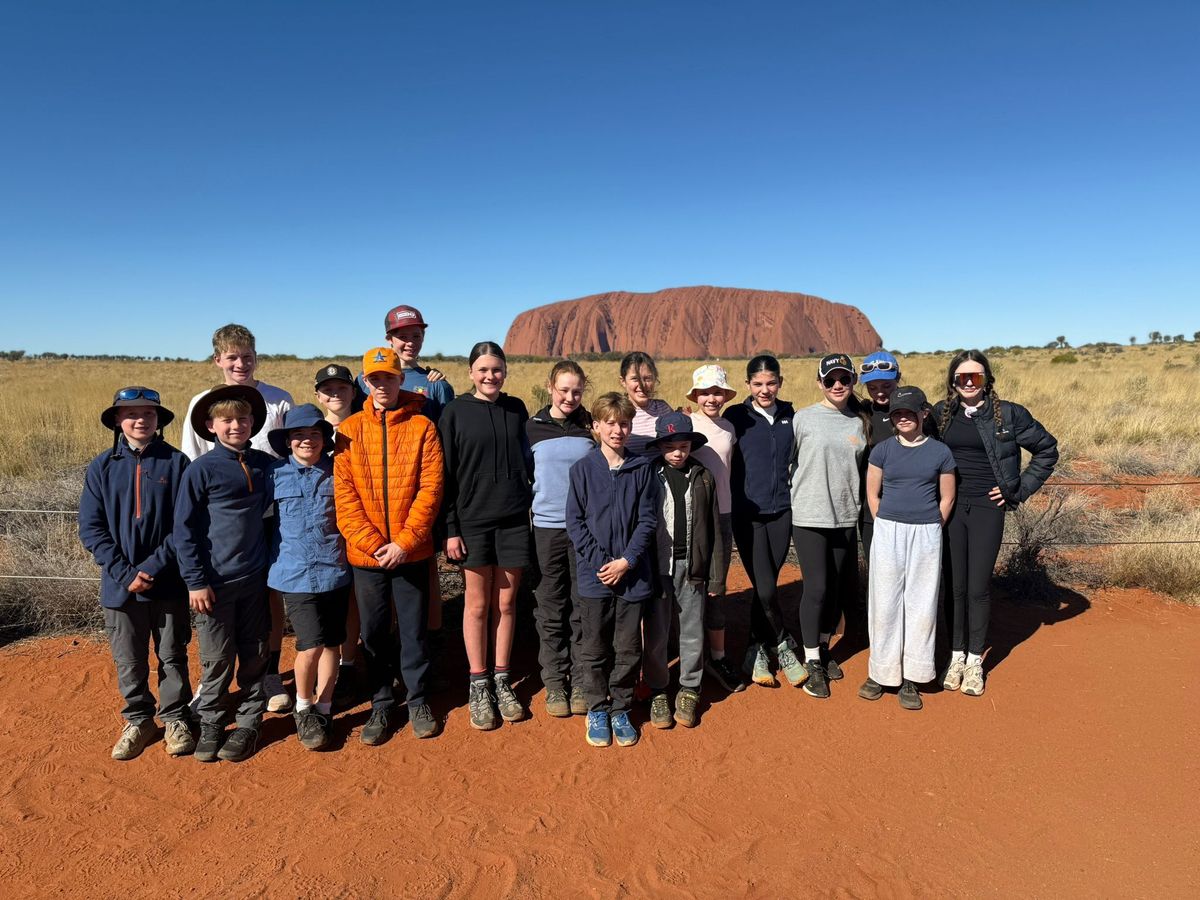
A journey of awe and wonder
Share this articleBy Ms Dimity Kidston, Secondary School Teacher
During the winter break, a group of 18 students from Years 7 and 8 embarked on a life-changing journey through Central Australia, accompanied by Mrs Sally Atkinson and myself. Over seven days, we explored some of the most breathtaking and culturally significant landscapes in the country – from the majestic presence of Uluru to the rugged beauty of Kings Canyon, the vast West MacDonnell Ranges, and the rich cultural teachings shared with us by Traditional Owners at the remote community of Lilla.
Highlights included the Mala Walk around the base of Uluru, a sunrise hike through Kata Tjuta, sleeping in swags under the stars, and learning to throw spears and paint using traditional dot techniques. Students experienced first-hand the deep connection between culture, land and community in Central Australia, while also enjoying moments of awe and humour.
A particularly meaningful part of the journey was our time at Lilla, where students were welcomed onto Country and taught about sacred sites and the stories embedded in land and sky. This respectful, immersive experience reminded us all of the privilege of being guests on Aboriginal land, and of the responsibility to listen, learn, and walk gently.
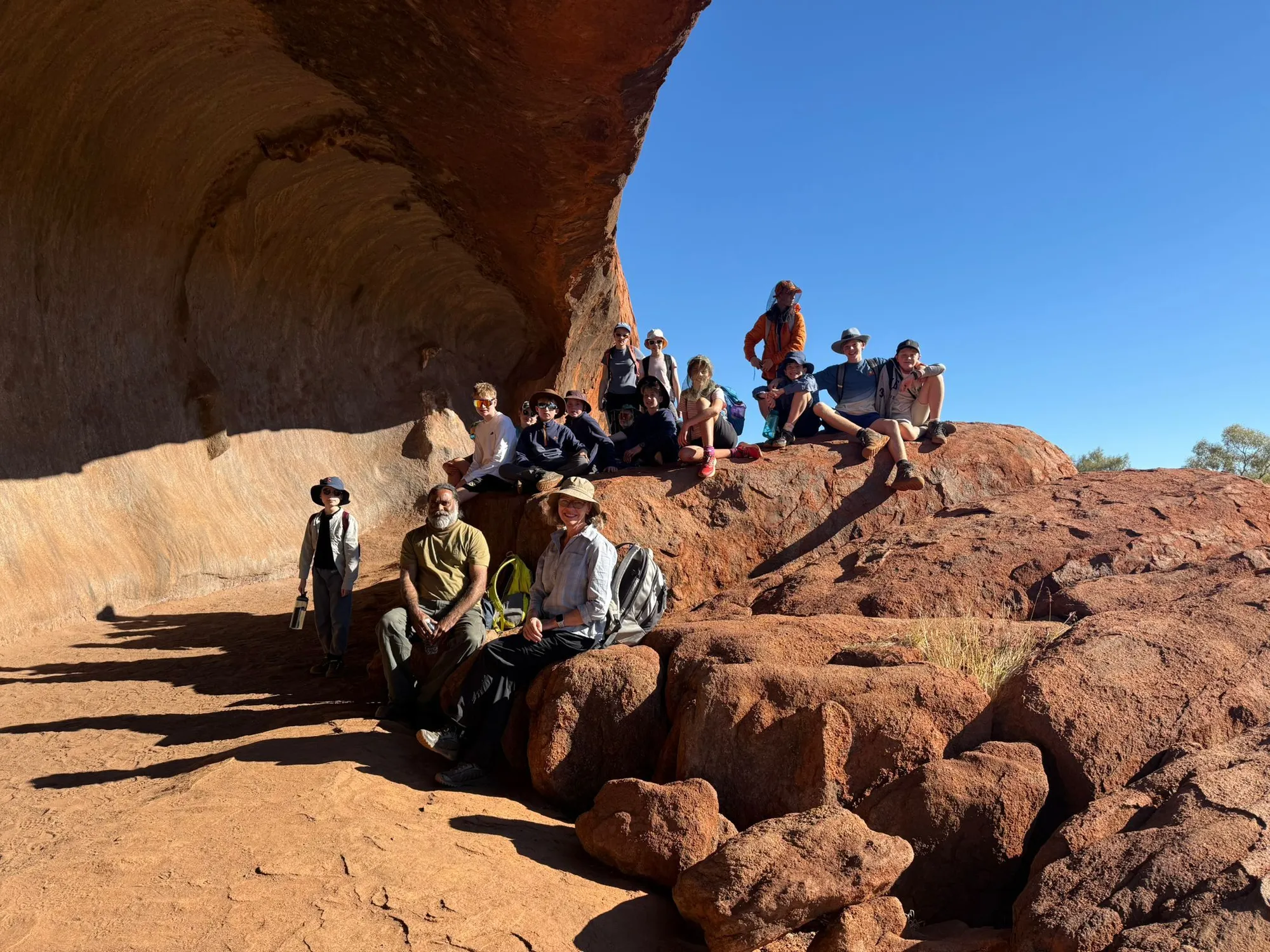
In preparation for the tour, we were fortunate to secure a Save and Learn grant from the Northern Territory Government. With this funding, we were able to purchase an original artwork titled My Country by Lulu Teece Petyarre. The work depicts the rich desert landscape we travelled through and will be permanently displayed in a special location at the College as a lasting reminder of the journey, and an invitation for all students to stay connected to Country, whether they travel near or far.
Thank you to the students for their curiosity, resilience and respect throughout the tour. And thank you to the Radford College community for supporting this unique opportunity for deep learning and cultural connection.
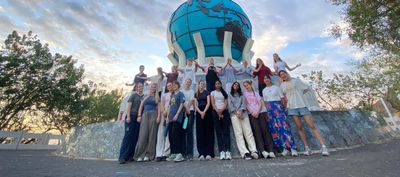
Travels in Timor
Continuing the journey in Timor-Leste
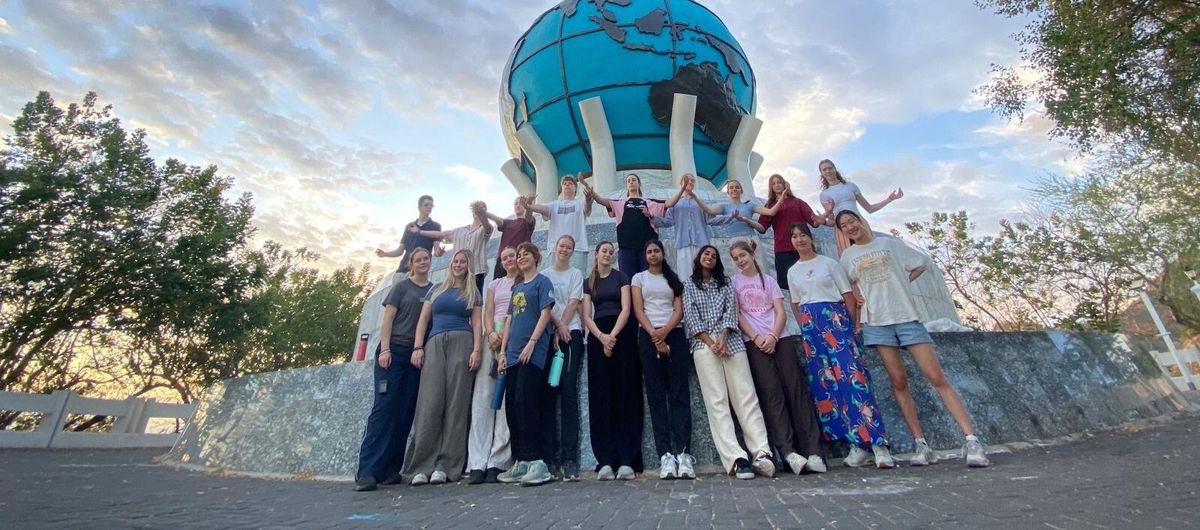
Travels in Timor
Share this articleBy Ms Tracey Markovic, Assistant Head of Junior School Operations
Since 2009, Radford College has maintained a strong and evolving relationship with Timor-Leste, sending student delegations each year to engage in a unique and transformative experience.
Each year, a group of dedicated students nominate themselves for the opportunity to travel with staff as part of a journey that builds upon the work and connections of those who have gone before. This is not merely a trip, it is a deeply meaningful commitment that begins long before departure.
Last month a delegation of 20 students and four staff members embarked on this meaningful two-week journey. While the visit itself was only for a short period of time, the connections made, and lessons learned are lasting. Relationships with communities in Timor have deepened year by year, creating a legacy of shared learning, mutual respect, and enduring friendship.
‘Never to. Not for. But with’ has always been the underlying focus of the trip. We do not go to Timor to ‘do’ anything but rather to be ‘with’ the people of Timor. We go to learn from the Timorese.
By spending time in schools, attending church, meeting communities to play soccer, and visiting local museums, students were able to learn more about one of Australia's closest neighbours. Although Timor-Leste is geographically one of Australia’s nearest neighbours, it remains in many ways a world apart. This contrast offers students a powerful opportunity to grow in understanding, compassion, and global awareness.
In the six months leading up to the visit, students and staff met regularly, engaging in learning sessions, cultural education, and personal reflection, all designed to prepare them for the trip.
Throughout the preparation process and during the time spent in Timor-Leste, the group worked together to learn about the country’s rich history, diverse communities, and cultural expectations. These insights help shape a more respectful and impactful exchange, where relationships are nurtured with care and humility.
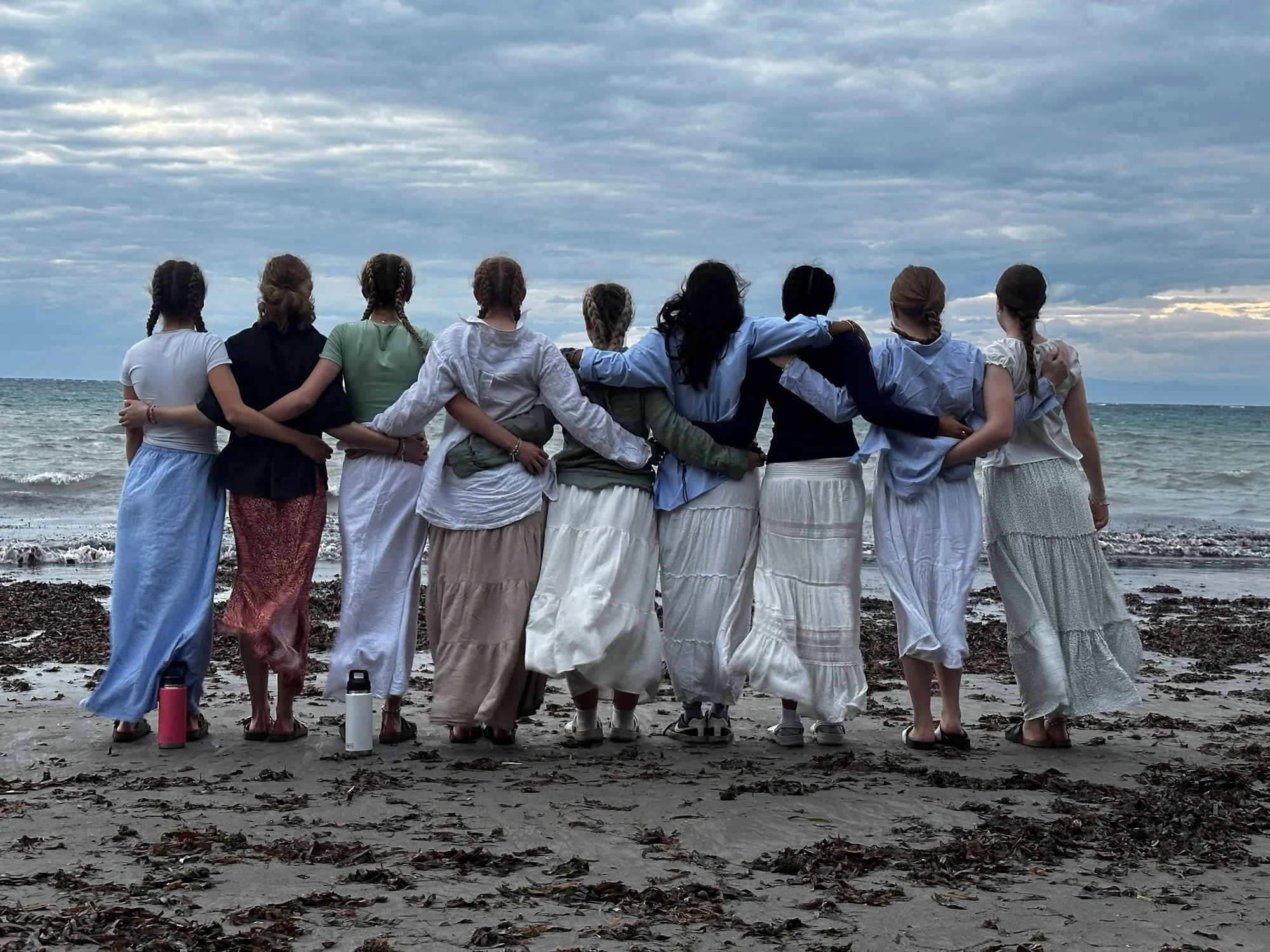
Old Friends – By Eva and Daniel
During our time in Ataúro we had a visitor come to Barry’s Place to tell us his inspiring story. Mario – also known as Super Mario – shared his experiences from childhood and hopes for the future.
Mario was born in Adara – a village on the other side of the island. Every day he would walk three and a half hours just to get to school and would then have to walk another three and a half hours to get back home. This journey was not an easy one it was a steep and rocky path leading up and down the mountain.
Mario wanted to study and go to university, but his father wanted him to stay home and work. Mario was committed to his dream of further education and through hard work and support from the community, he was able to study marine biology in Indonesia.
After the course, he came back to Ataúro and worked at Barry’s place. He raised money, and built his own resort, Mario’s Place, in his village. He also built a house next to Barry’s Place, so students walking to school from Adara can spend the night there. He is now trying to get a school built in Adara.
Mario’s story was incredibly interesting to hear. His hard work, resilience and hope for the future is truly inspiring.
His dream is for his son, Henrique, to study in Australia. "I want my son to close the gap. It is my dream."
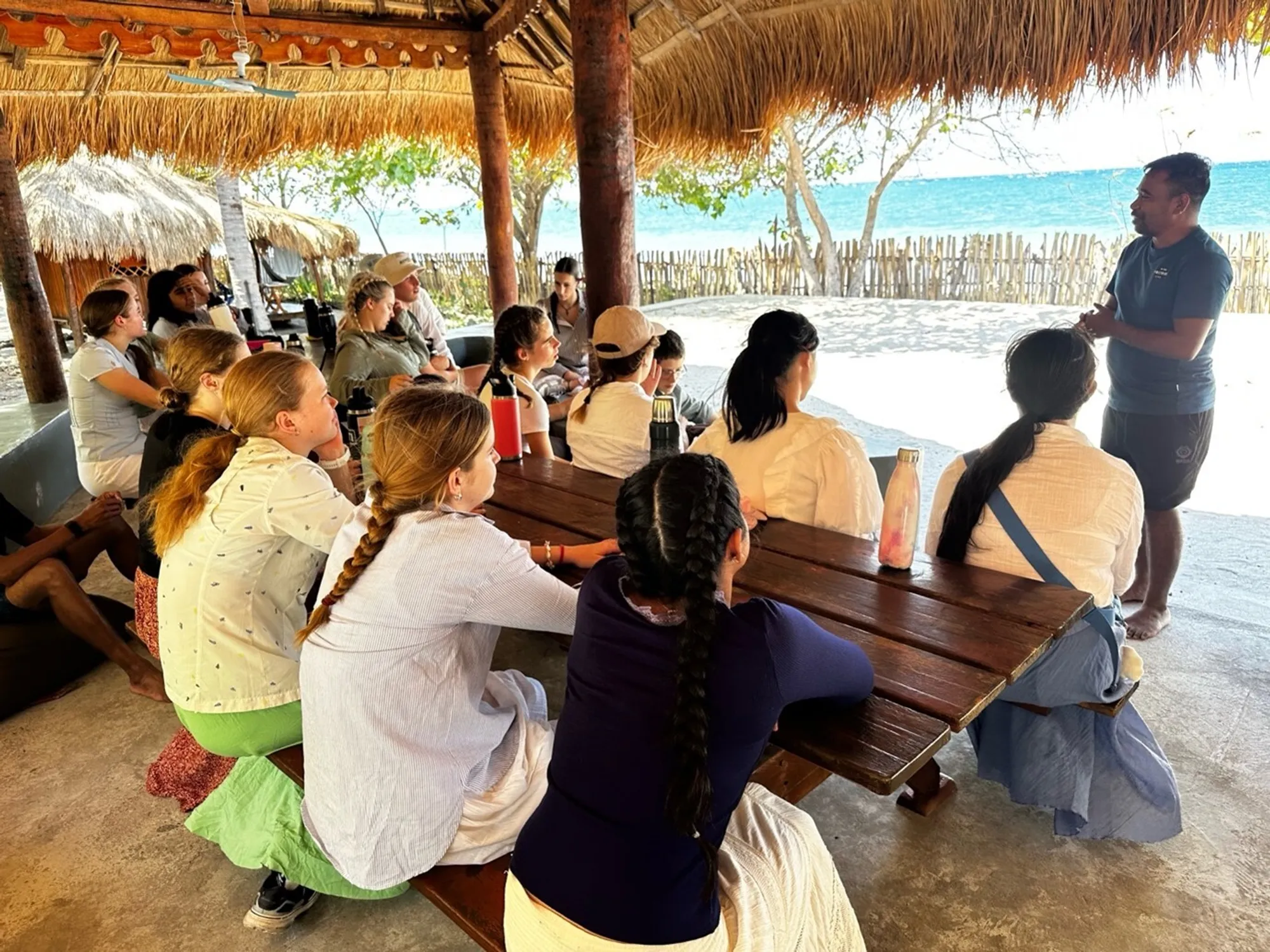
Soccer is universal – By Astrid and Odele
Shortly after arriving in Ataura, we were told that we'd have the chance to play in a community soccer match and we jumped at the opportunity.
We quickly got ready and hopped on our transport – an angguna (a truck carrying passengers and other belongings on the back). The road was quite bumpy, but we hardly noticed because we were filled with excitement for our match against a Timorese team.
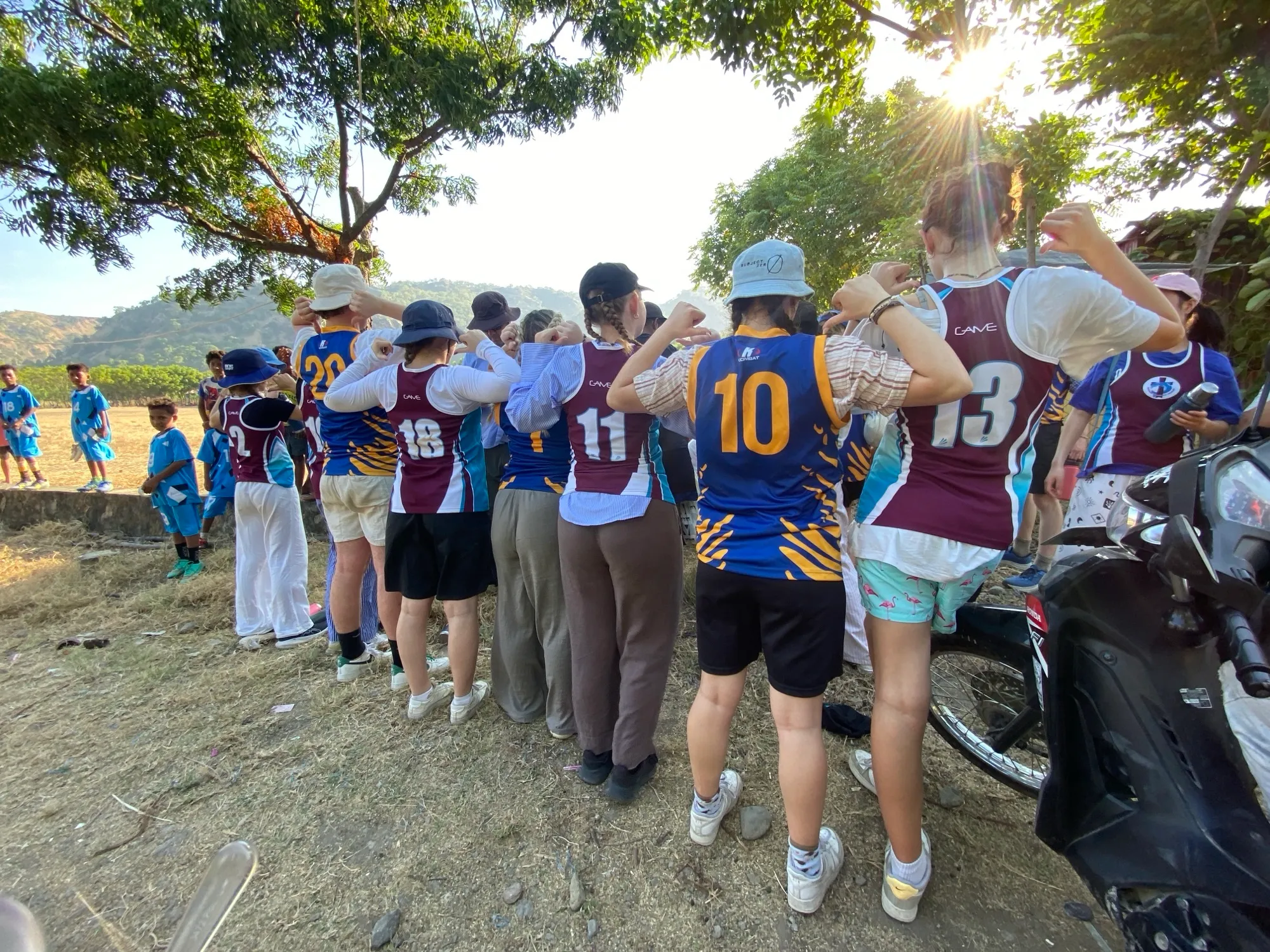
It was an extraordinary afternoon. It was very hot, but the game was fun, and everyone had a smile on their face. Even though we were on different teams, it felt like we made a strong connection with each other, bonding over our shared enjoyment of the game.
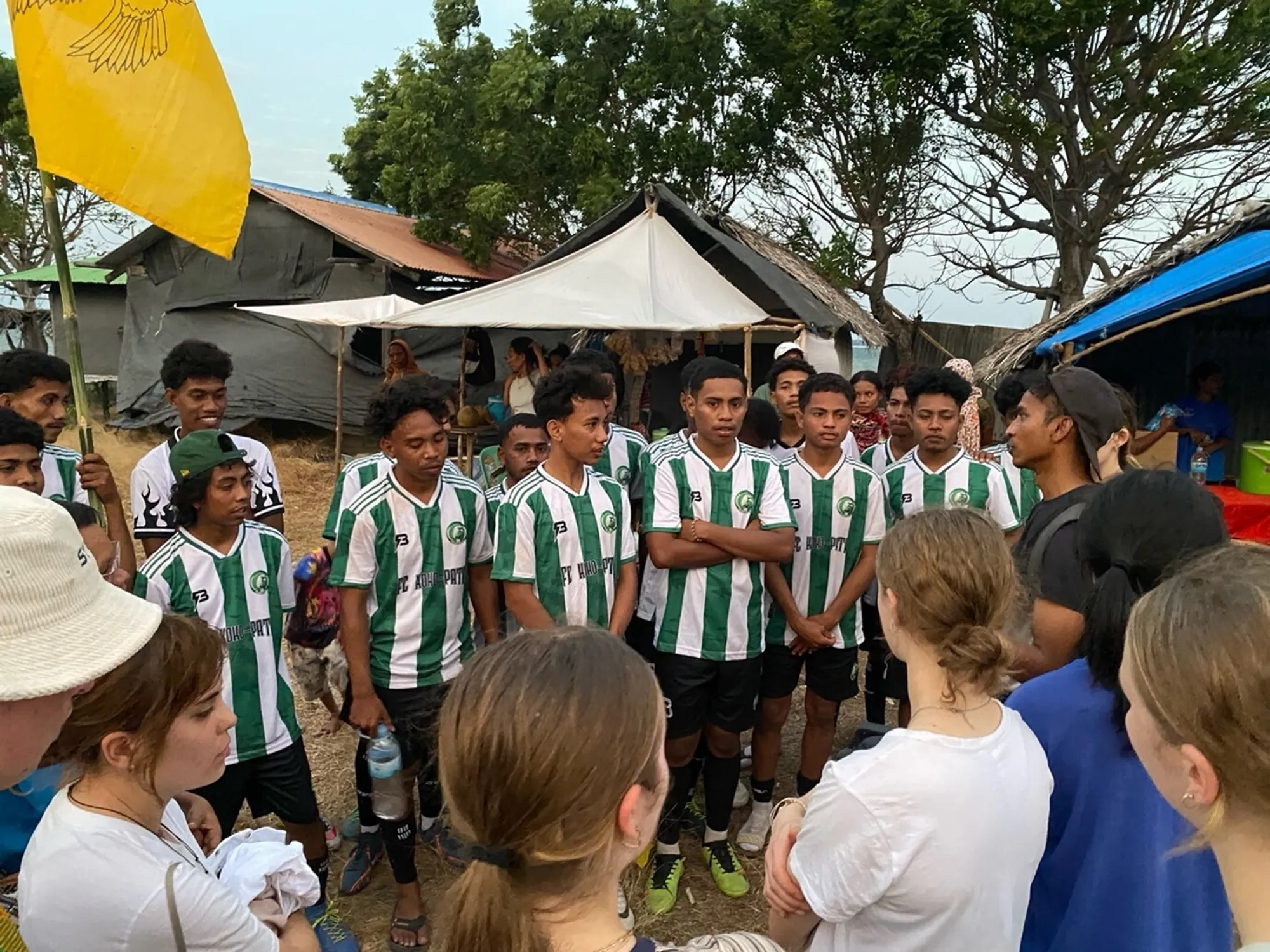
Opportunities – Kaiya and Olivia
Opportunities arise in small situations,
A simple chat, a trip away.
To be able to take the opportunities,
One must be willing to explore.
Explore the possibility of the present,
While staying away from the future.
One must not regret what should’ve happened,
and see the possibility of what could happen,
and one must never let the pressure of expectations,
stop opportunity from being taken.
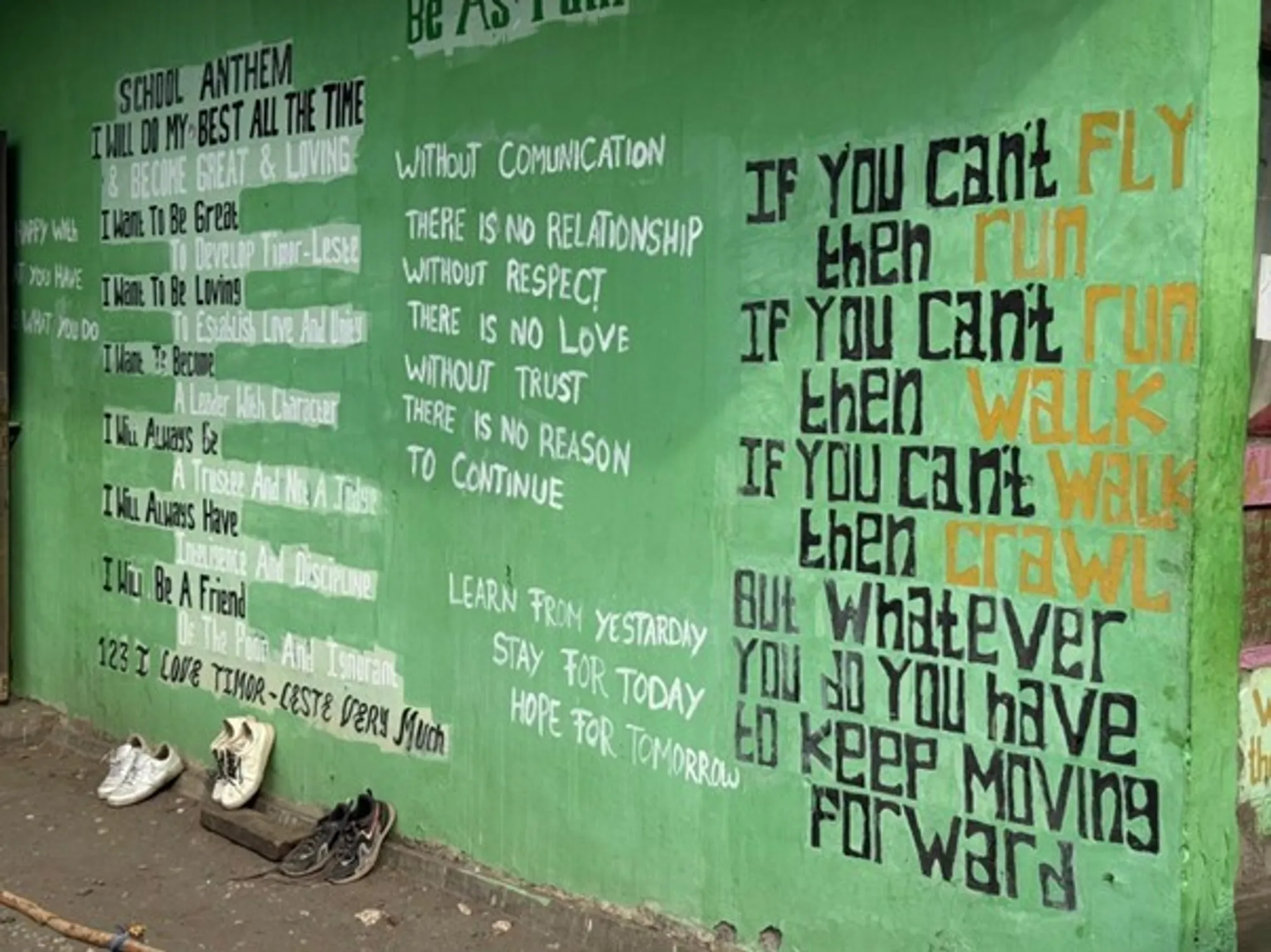
Meeting the President
Seeing the President of Timor-Leste, José Manuel Ramos-Horta, casually driving through the streets of Dili in his iconic blue Mini Moke may be a familiar sight to locals, but for us it was an unexpected and thrilling moment. The Nobel Peace prize laureate recognised us as we walked to dinner one evening after meeting our group just a few days earlier at Kantina Matak.
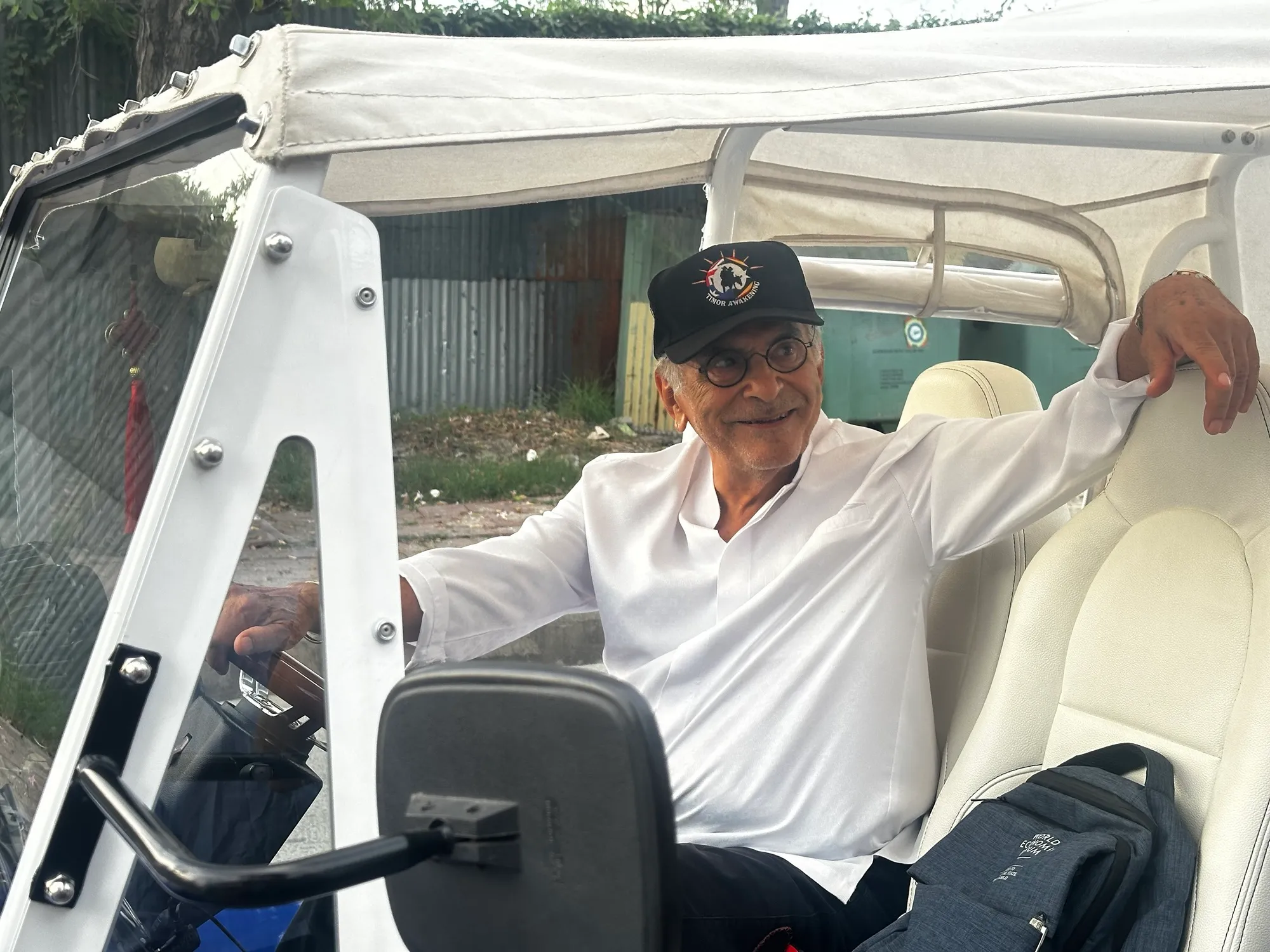
Without
hesitation, President Ramos-Horta slowed his car and, spotting a few familiar faces
among our students, stopped in the middle of the
road to greet us. With his warmth and approachability, he enquired how our trip
was going. Road traffic slowed down around us, but it didn’t matter—President
Ramos-Horta took the moment to share another one of his engaging stories with
our group, leaving a lasting impression on students and staff alike.
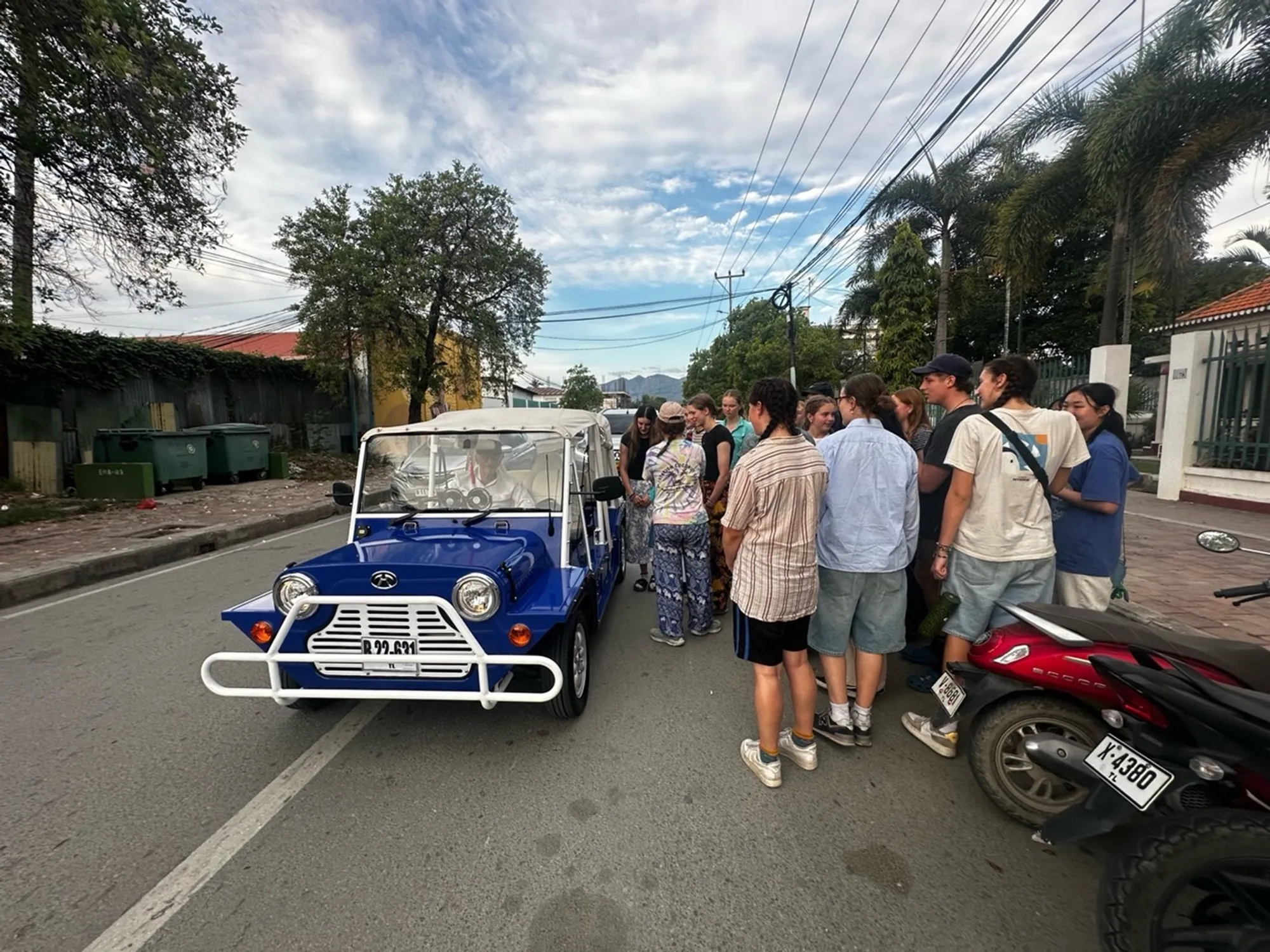
If you are interested to read more about our travels, please feel free to have a look at the Timor Travels 2025 Blog written by our students.
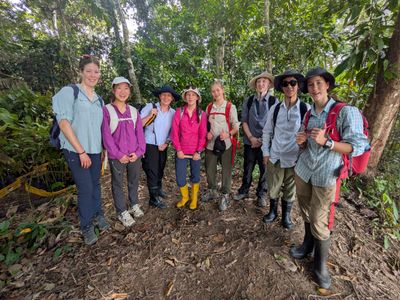
Borneo adventures
A eye-opening journey of learning and self-discovery
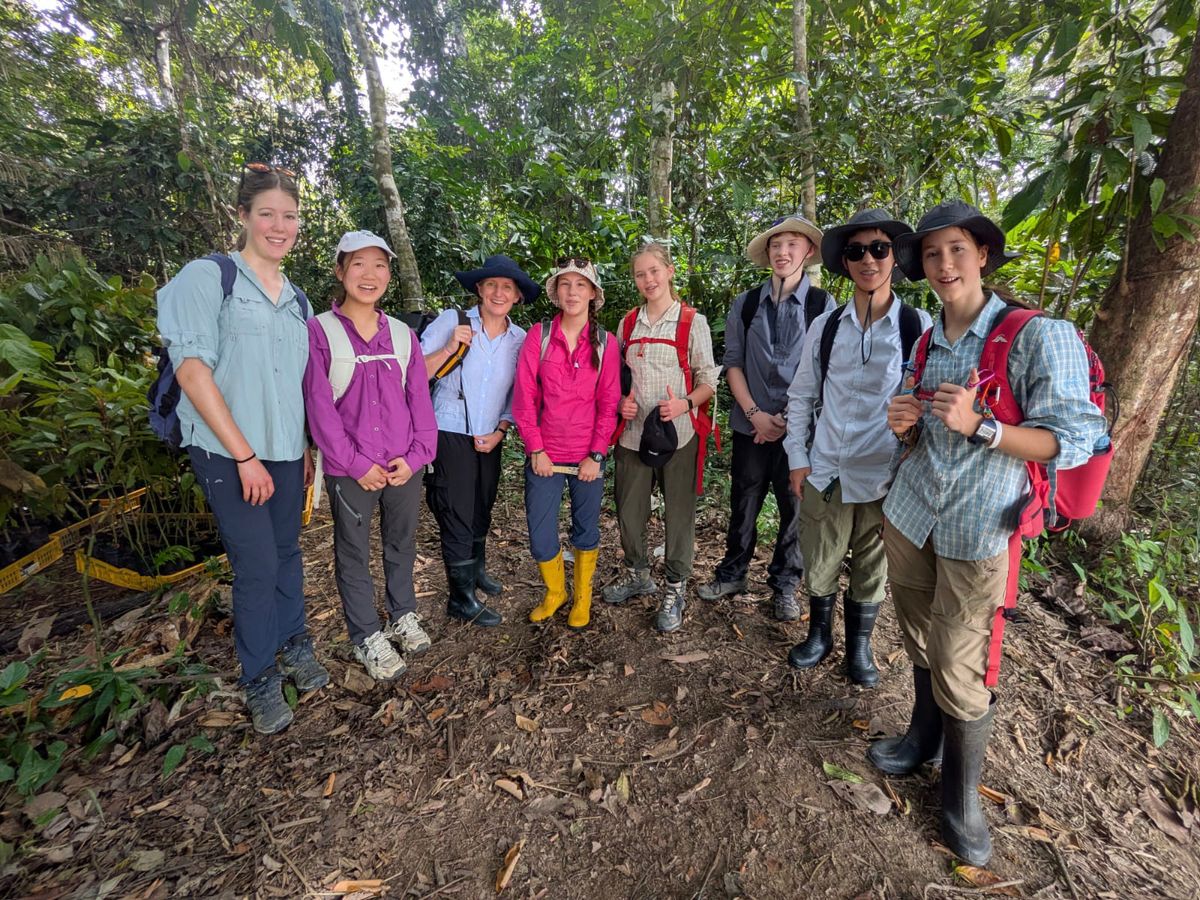
Borneo adventures
Share this articleBy Ms Sam Lonsdale and Mrs Jane Smith, Teachers
A group of intrepid Year 9 and 10 students ventured to the island of Borneo in the July school holiday break. During this eye-opening experience, the students not only enhanced their leadership skills but learnt about their own strength of character and worked as a team to plan the trip and problem solve to overcome challenges presented. They demonstrated great resilience, grit and perseverance, as well as learnt about and showed an appreciation for the people, history and natural beauty of Malaysian Borneo.
The tour was student led, under the guidance of a World Challenge leader and Radford College Teachers Mrs Jane Smith and Ms Sam Lonsdale. The students were divided into smaller teams rotating between important tasks of team leadership, handling the budget, organising recreation and relaxation activities and managing accommodation and transport checks.
Starting in the urban capital of Kota Kinabalu the team quickly adapted to the local cuisine and enjoyed local food such as fried rice, nasi goreng and noodle dishes. The students explored the food and craft markets, heritage features of the city, and the many murals decorating the buildings. They also dabbled in river rafting and paddle boarding.
A highlight of the tour was the trek in the foothills of Mount Kinabalu, the highest mountain in Malaysia (4,095 metres). With the essentials packed into backpacks for the jungle trek, which included a hammock for sleeping in, a mosquito net and a much-needed walking stick, the group ventured into the foothills of Mount Kinabalu.
The group passed pineapple plants, coffee trees, banana palms and rice paddocks that the villagers harvest throughout the year. Local guides helped navigate the technical terrain, building bamboo bridges to cross gushing streams and motivating the group in the hot, humid conditions. The students relished the opportunity to sleep in the jungle hammocks, learnt about the local tribe and hunting techniques, and witnessed how the jungle comes alive at night with the sounds of insects, frogs, spiders and the call of gibbons.
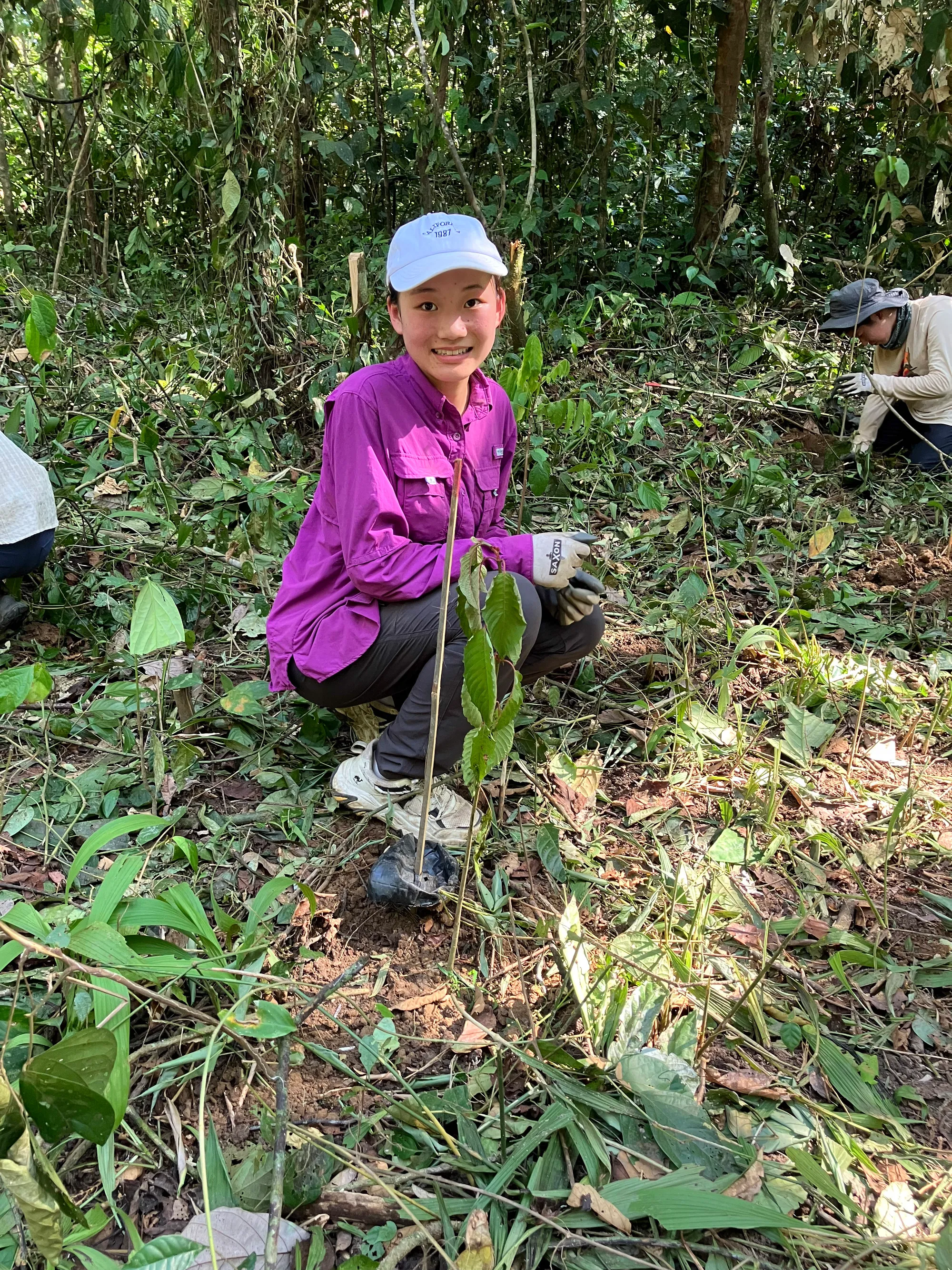
Following the trek, the group was welcomed to a homestay in the village of Guas Nabalu where the students had Borneo cuisine cooking lessons, learnt the complex process of coffee production and tasted the delights at the local pineapple factory.
The group then spent five days working and learning about the Kopel Forest Restoration Project established in 1998 on the banks of the Kinabatangan River. The students enjoyed a sunset river boat ride to try and spot the Borneo five, and managed to set eyes on four: the Proboscis Monkey, the Orangutan, the Rhinoceros Hornbill and the Estuarine Crocodile. The Pygmy Elephant remained elusive.
The students have returned home with a deeper appreciation for the world’s rich biodiversity and the dire need for sustainable practices, an enhanced understanding of how communities can work together to create positive change, and a strong sense of their own power and influence in shaping the world around them.
Our trip to Borneo was genuinely just an awesome experience. The scenery, the culture, the food – every part of it was so much fun. It was amazing to enjoy the hospitality of the local people, who welcomed us into their homes and communities. I would highly recommend a trip like this – Alia
Borneo’s landscape was amazing, giving me real appreciation about biodiversity in the world today. I especially noticed the kindness of the local people in Borneo and the depth of how their culture is connected to the environment around them – Rubin
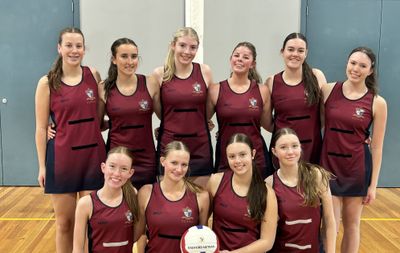
Radford College sports wrap
Term 3, Week 1
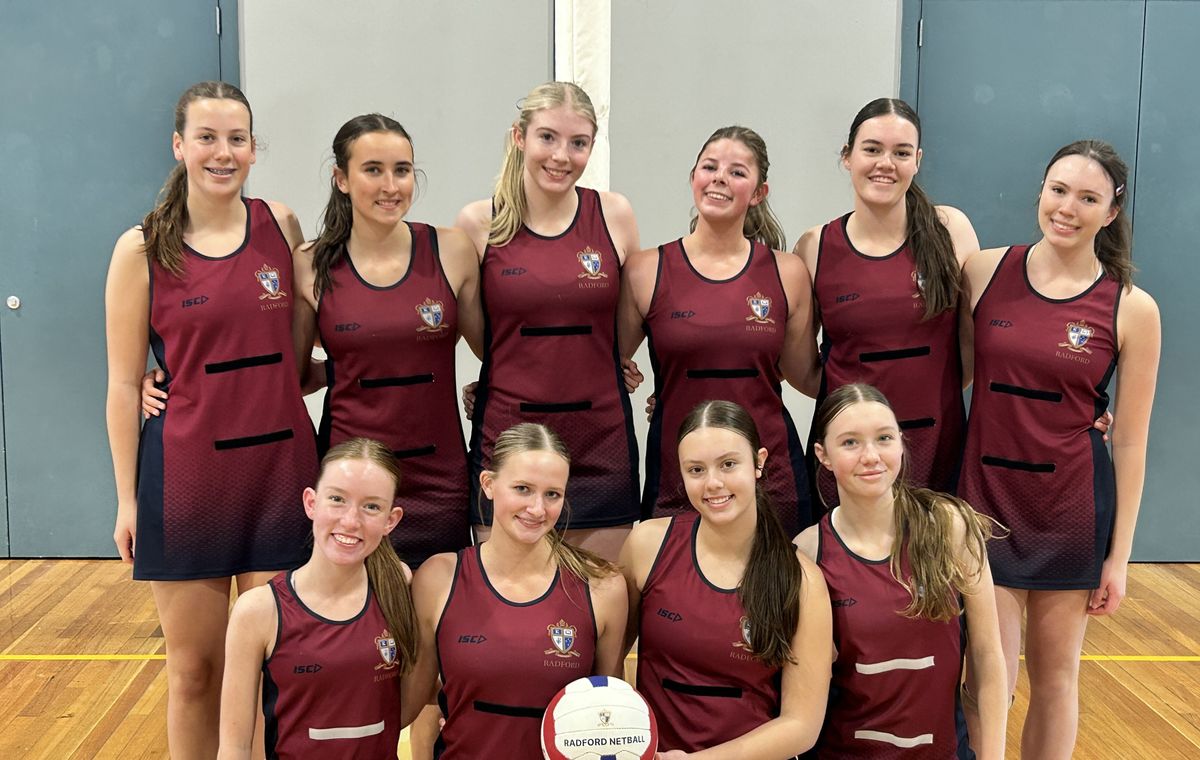
Radford College sports wrap
Share this articleWaverley International Schools Netball Championships
Radford’s top netball team, comprising of players from Years 9 to Year 12, toured to Melbourne during the July School Holidays for their debut at the Waverley International Schools Netball Championships.
The tour commenced with an exciting outing to the Suncorp Super Netball to watch a tight game between the Melbourne Vixens and Queensland Firebirds.
On day two, Radford headed to St Monica’s College, Epping for a friendly match and lunch. Radford hit the ground running by taking a 30-goal win against the hosts and putting themselves in strong stead ahead of the tournament.
Radford began the Waverley International Schools Championships full of enthusiasm and excitement, improving with each game during the four-day competition. Radford achieving the goal of making the top 16 play offs, before going on to win against Singapore 22-10. Facing older opponents and international teams, the girls showed unwavering team spirit, energy and determination throughout the week to finish in 14th place.
Head of Netball, Ms Emily Robinson describes it as an incredible achievement on debut, especially with a younger team than many of their opponents. "We look forward to building on this result in years to come."
Snowsports
Radford College had 36 students from Kindergarten to Year 12 competing at the 2025 ACT/NSW Regional Interschools Snowsports Championships in Perisher this past week. They competed either individually or as part of a team in events such as Alpine, Snowboard GS, Ski Cross, Snowboard Cross, Slopestyle and Moguls.
With results from the final day yet to be finalised, the Radford Snowsports Team has already achieved two silver and two bronze medals: Jemima in Year 7 won a silver medal in the Div 3 Snowboard Cross, and Charlie and Aanya, both in Year 11, received a bronze medal in the Div 1 Snowboard GS. Charlie was also part of the team that won a silver medal in the Div 1 GS with Year 12 students Emily, Amber and Audrey. Darcy in Year 10 achieved a bronze medal in the Div 2 GS.
Congratulations to all our students who competed!
Sporting achievements
Congratulations to Patrick (Year 8), Matty (Year 10) and Astrid (Year 11) who have been selected to represent Capital Athletics at the 2025 Australian Cross Country Championships on 23 August in Ballarat, Victoria.
Well done to Moira, Zara and Josh (All Year 12) for their selection in the ACT U22 Rowing Teams who will compete at the 2025 Oceania Rowing Championships in Adelaide from this weekend.
UC Capitals Holiday Camp
Radford College was delighted to host the UC Capitals Holiday Camp led by UC Capitals players Nicole Munger and Nyadiew Puoch. More than 80 young athletes made the most of this exciting opportunity for skill development and inspiration.
A special appearance by WNBL legend Jessica Bibby was warmly received and greatly valued by all in attendance. We extend our sincere thanks to the UC Capitals for their ongoing support of Radford Basketball.
New Summer Sport Registration Process for 2025/26
Radford Sport is excited to announce that a new and streamlined registration process will be launched for our 2025/26 Summer Sport season. This updated process is designed to ensure families can easily access clear, sport-specific information and make well-informed decisions.
All sport registration details—such as competition options, costs, training requirements, and registration links—will now be housed directly on each Sport Specific Nexus Page. This replaces the previous multi-document approach and allows families to quickly find relevant information for their child’s sport and year level.
General information about Radford Sport, including the PK–12 Sport Offerings, Terms and Conditions of Participation, links to each sport’s page, and policy documentation, is now located on the Radford Sport Nexus Homepage.
Introducing the Radford Sport Training Grid
A key addition to the new process is a comprehensive Radford Sport Training Grid, which outlines all training sessions across the summer season. This includes day, time, gender, age group, and location for each sport. We encourage families to review the Training Grid carefully and avoid registering for multiple sports where training clashes occur.
To support the success of our teams, Radford Sport strongly advises that students are only registered in sports where they can fully commit to the training and game schedule. When a student does not attend training or regularly misses games, it impacts the entire team and does not set the group up for success. While we have worked hard to minimise clashes, the breadth of opportunities available at Radford means that some overlap is unavoidable. We encourage families to prioritise quality over quantity when it comes to sport selections.
Register now for Radford Basketball
The first sport to open registrations for Summer 2025/26 is Radford Basketball. All registration and trial information is available on the Radford Basketball Nexus Page. Trials will be held across two weekends: 2–3 August and 9–10 August, with team announcements to follow.
Registrations close on Sunday, 17 August, so don’t delay!
Key Reminders:
- Join the sport specific Nexus pages to stay up to date with all the latest news.
- A $50 non-refundable registration fee applies to all sports.
- Some sports have minimum and maximum registration numbers, so we recommend registering early to avoid missing out.
- Teams require a confirmed Parent Manager to be entered into competition.
- Commitment to both training and games (including during school holidays) is expected.
- Late registrations may not be accepted due to competition limits.
Let’s gear up for a successful and enjoyable summer season!
Any questions please contact CCSport@radford.act.edu.au
Upcoming School Sport ACT Team Trials (SSACT)
12&U Netball (Boys)
- Tuesday, 29 July and Thursday, 7 August from 4.00 pm–5.45 pm
- ACT Netball Centre, Lyneham
- For more information about the trials and to register, please visit SSACT Netball
12&U Netball (Girls)
- Monday, 4 August (surnames A–L), Friday, 8 August (surnames M–Z), Monday, 11 August (combined trial) and Tuesday, 12 August (invitational trial).
- 3.45 pm–5.45 pm at the ACT Netball Centre, Lyneham
- For more information about the trials and to register, please visit SSACT Netball
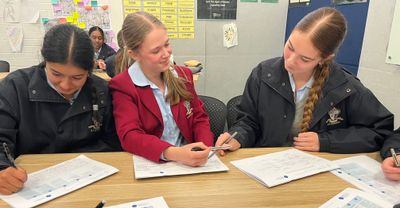
Deep learning for reconciliation
An insightful study of Aboriginal rights and freedoms
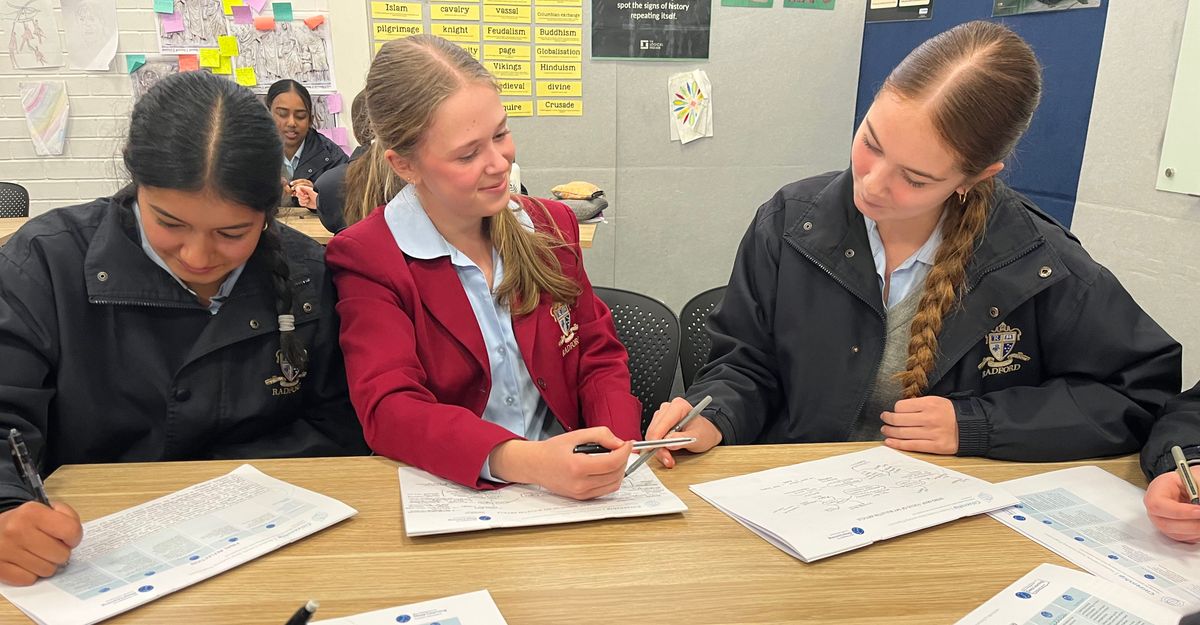
Deep learning for reconciliation
Share this articleBy Dr Rebecca Barlow, History and Global Studies Teacher
Radford College is currently formalising its commitments to reconciliation in its first ever Reconciliation Action Plan. Did you know that these efforts are operationalised through the curriculum in our classrooms on a regular basis?
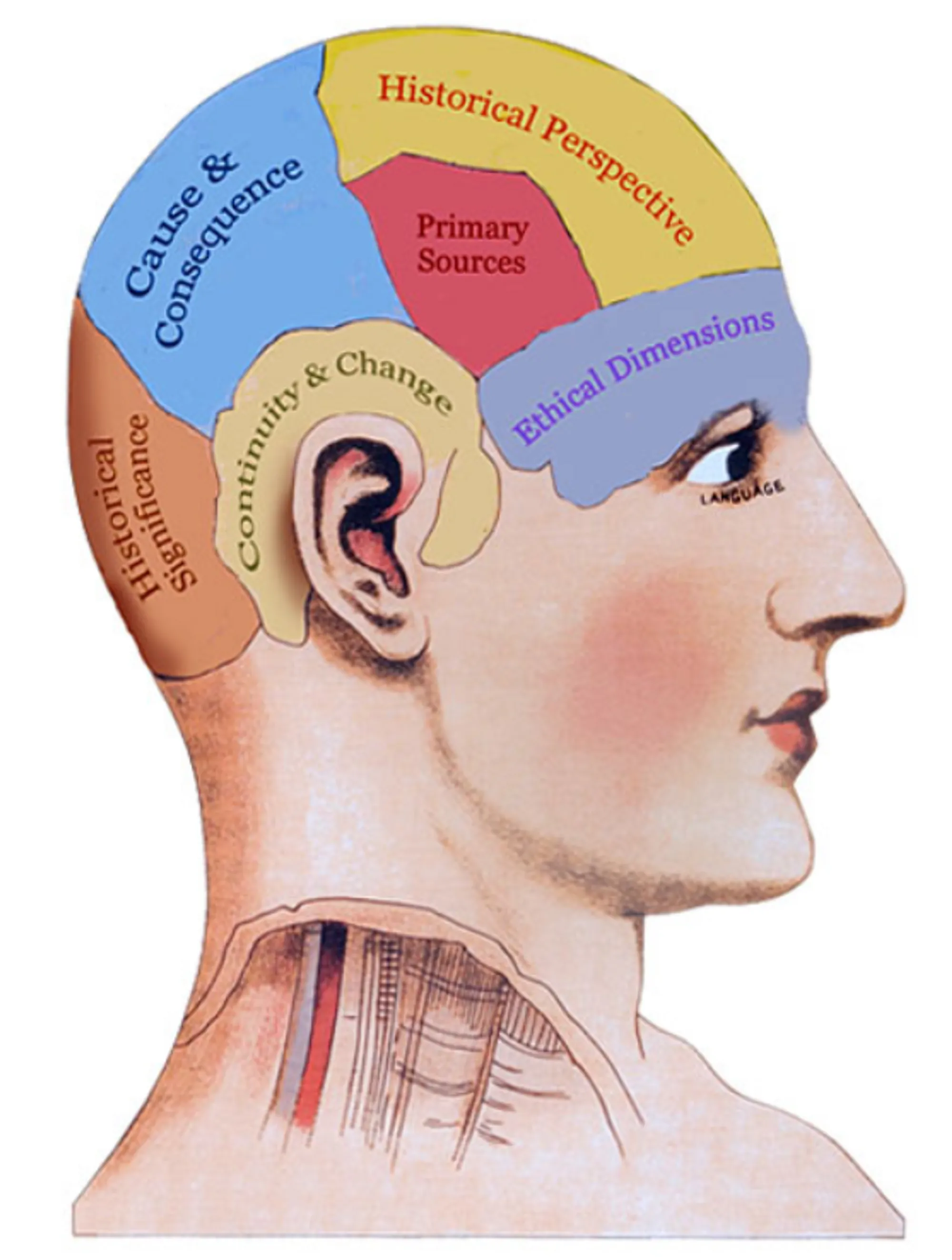
The classroom is a critical site for reconciliation. Moreover, the significance of a strong education in the Social Sciences and Humanities cannot be overstated: there is wealth of research showing that students who are engaged in social justice education not only build their capacities as agents of change but also achieve better learning outcomes and report higher well-being indicators.
Year 10 History students spent last term delving into a study of Aboriginal rights and freedoms throughout the twentieth century to the present day. Using a Deep Learning framework to “split-screen” competencies and content, students explored themes of resistance and resilience through a range of case studies whilst engaging in regular formal reflections to consider the ethical dimensions of historical inquiry. These case studies included Eddie Koiki Mabo and Native Title, Faith Bandler and the 1967 Referendum, and Pat Dodson and the Uluru Statement from the Heart. The unit was underpinned by the philosophy of New History, which argues that the past is not neutral, and should not be treated as such in historical analysis; that ‘if the story is meaningful, we should expect to learn something from the past that helps us to face the ethical issues of today.’
Taking up this challenge, students employed the ‘I used to think … now I think …’ thinking routine from Harvard University’s Project Zero to produce “GRASPS” tasks in the form of evidence-informed opinion pieces. GRASPS – which stands for goal, role, audience, situation, product, and success criteria – is a framework for authentic assessment design which empowers learners to demonstrate conceptual understanding, critical knowledge, and higher-order skills acquired through a unit of learning. This allowed students to position themselves as experts and showcase their “lightbulb moments” in their study of Aboriginal rights and freedoms with regards to land rights, civil and political rights, and reconciliation.
Keep your eye out for updates on Radford’s first Reconciliation Action Plan, including its operationalisation in our classrooms.
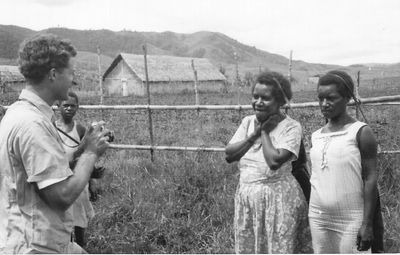
Professor Anthony James Radford AM (1937-2025)
Remembering Bishop Radford's grandson
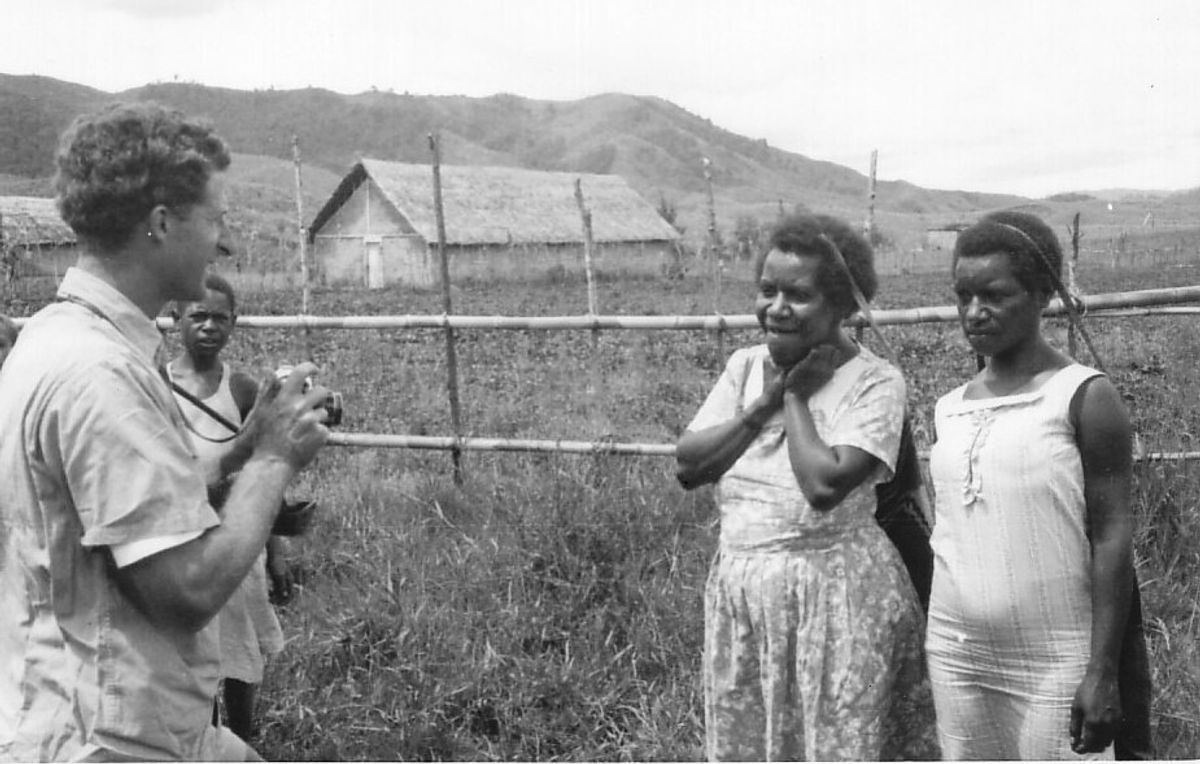
Professor Anthony James Radford AM (1937-2025)
Share this articleWe wish to inform our community of the death of Anthony Radford, our namesake’s grandson. Anthony lived a colourful and remarkable life and followed in his grandfather’s footsteps, creating a profound legacy of education and community service.
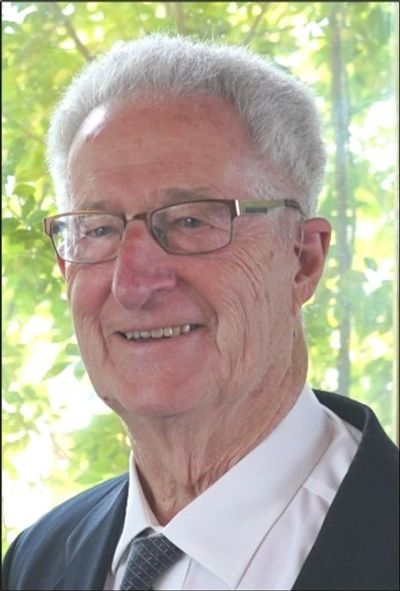
Professor Anthony Radford AM
Public Health Physician | Epidemiologist | Educator | Humanitarian
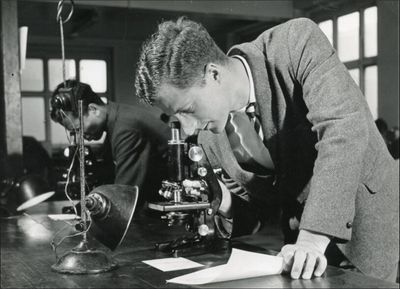
Anthony devoted more than six decades to advancing medicine, public health and international development across more than 45 countries. His work spanned clinical care, medical education, research and health system strengthening. During his remarkable life he discussed a snake bite with Prince Charles while walking in Papua New Guinea; held a medical clinic in the Amazon with piranha swimming around him; visited Mother Theresa to chat about hospices; crossed illegally into Burma and taught health students on the run from the militia, and worked for the United Nations High Commissioner for Refugees (UNHCR) among displaced people on the Thai-Cambodian border.
Anthony pioneered rural medical education and community health initiatives in Papua New Guinea. He later studied at Liverpool, Edinburgh and Harvard, achieving distinctions including a Gold Medal in Tropical Medicine and a Fulbright Scholarship. In 1975, he became the Foundation Professor of Primary Care and Community Medicine at Flinders University, transforming general practice and public health education in Australia.
He authored more than 250 publications and several books, including Singsings, Sutures and Sorcery and Have Stethoscope, Will Travel.

Anthony was appointed a Member of the Order of Australia in 2019 for his service to global and community health and to medical education. His legacy lives on through institutions, students, communities and the Anthony and Robin Radford Family Grant, which supports refugee-background students in health and social work at the University of South Australia.
When not engaged in professional activities, Anthony enjoyed travel, natural history, sport, gardening, reading, writing and spending time with his widespread family.
Anthony is survived by his wife Robin, his children and their spouses, Mark and Carolyn, David and Wendy, and Sarah, nine grandchildren and eight great-grandchildren. His life was one of generous intellect, practical compassion and unwavering dedication to the well-being of others.
(Edited from the obituaries written by Mark Radford and Peter Kreminski)
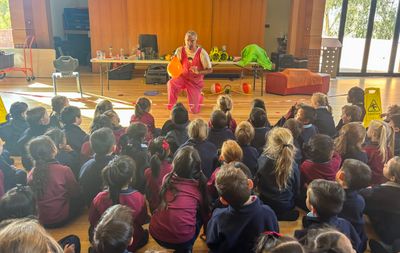
Little scientists
Developing a love for science from an early age
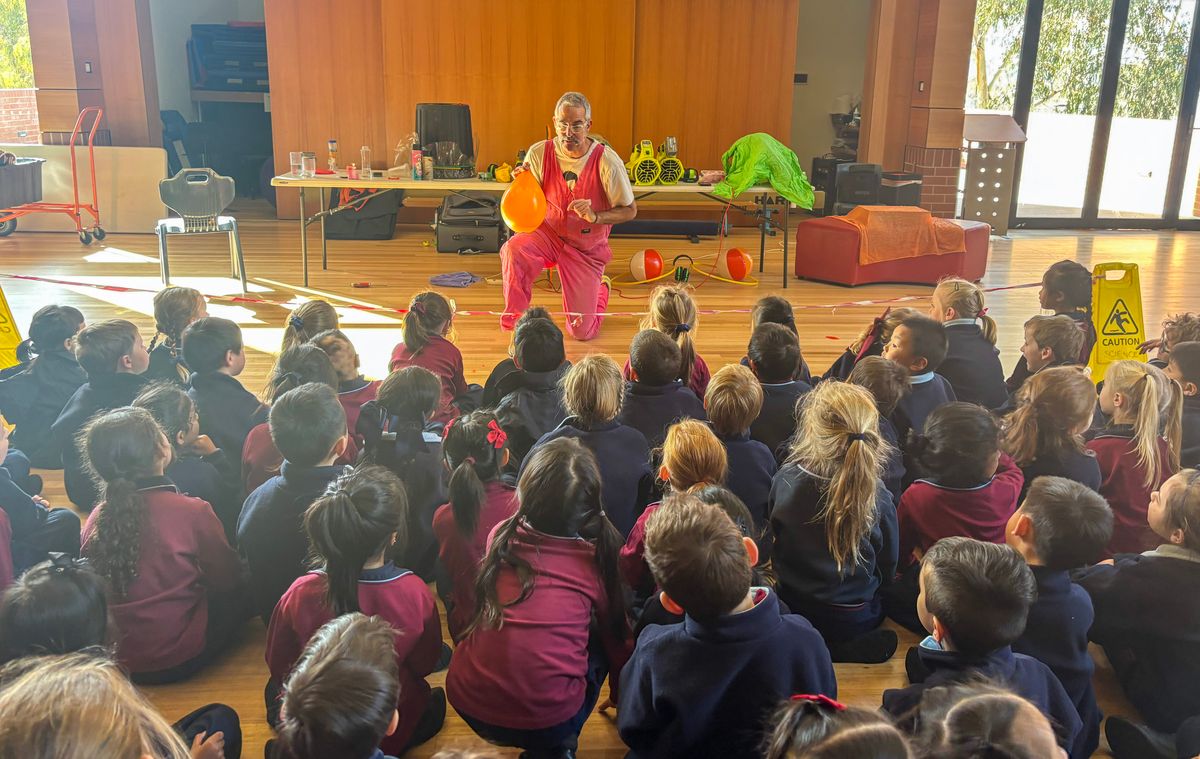
Little scientists
Share this articleBy Miss Melinda Hamilton, Kindergarten Teacher
In the first week back to school our Kindergarten students enjoyed a ‘Little Scientists’ incursion with Dr Graham Walker from the Australian National University as part of their new unit of inquiry, How the World Works. Dr Walker is a science communication teacher, researcher and practitioner based at the National Centre for the Public Awareness of Science (CPAS) at ANU.
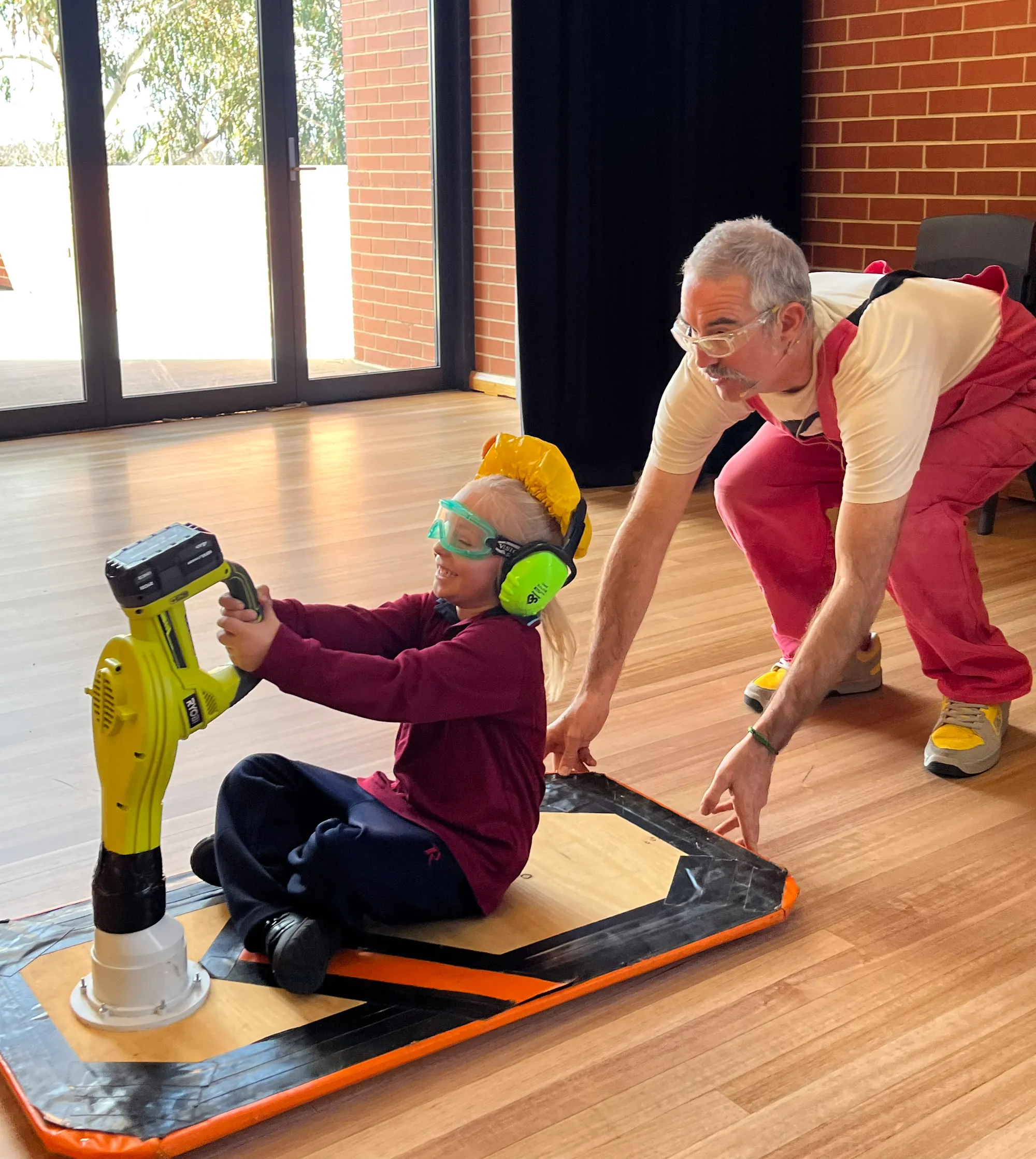
Lots of gasps, giggles and squeals of delight were heard as Dr Walker demonstrated scientific experiments using household items such as ballons, a leaf blower, a vacuum cleaner and a rubbish bin. The students were hanging on his every word.
They learned that when you do an experiment you only change one thing at a time to find out what effect it has. Their main take-away from the session was that scientists are curious and ask lots of questions. It was truly an eye-opening experience for our young students.
It was so much fun. I learnt that scientists can make cool inventions – Archer
I got to cut the straw when Graham was blowing it. I had to not cut his nose – Johan
Graham used his big drum of air to knock a cup off my head. Scientists do lots of experiments to learn new stuff – Caitlin
It was so funny when Graham had the blower making the big balls go above us. The blow was very strong – Annabelle
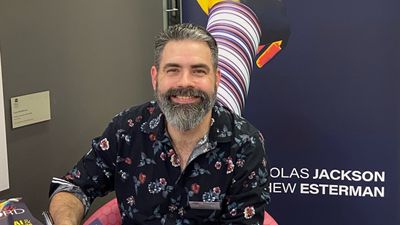
Calling all teachers!
Find out more about the AI Advantage from Matt Esterman
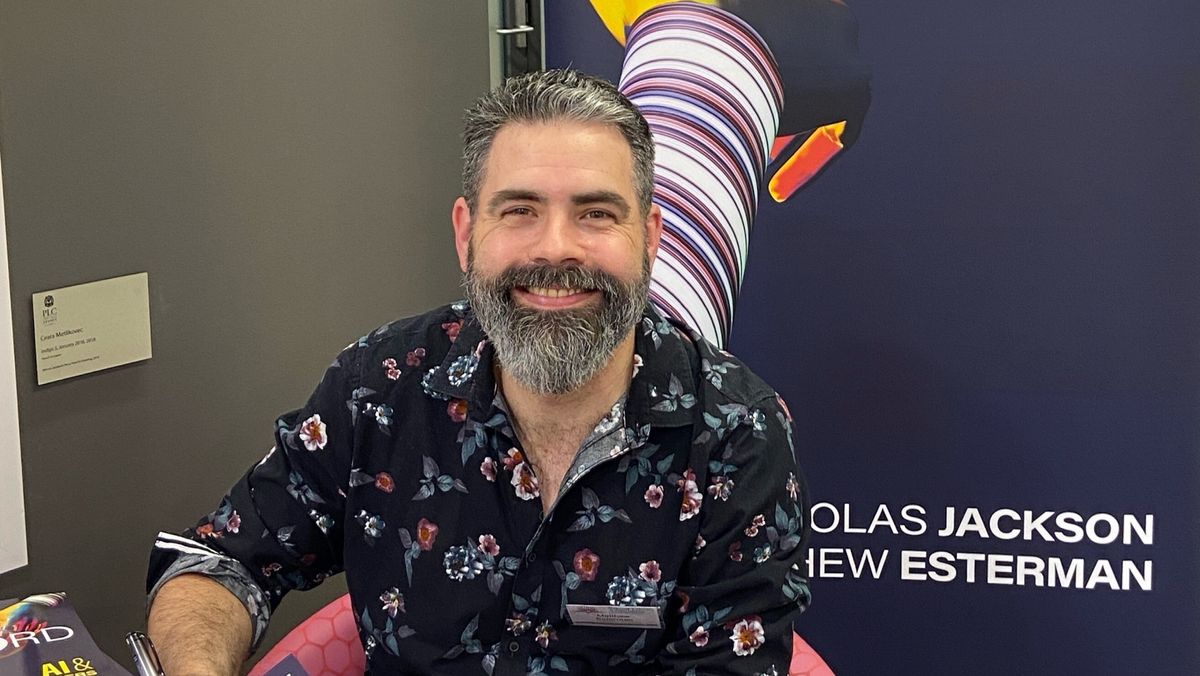
Calling all teachers!
Share this articleForget everything you think you know about "professional development." This isn't about ticking boxes or enduring another PowerPoint. This is about discovering how AI can give you a genuine, almost-unfair advantage in the classroom, in your lesson planning and in reclaiming your most precious resource - time.
Matt Esterman, the mind behind The Next Word, isn't here to preach from on high. He's here to unpack the astonishing reality of AI, not as some futuristic threat, but as a surprisingly potent ally. Think of him as your behavioural economist for the education sector: identifying those seemingly small, counter-intuitive tweaks that can yield disproportionate returns.
Who is this session suitable for?
This workshop is designed for educational leaders and decision-makers who are keen to explore how AI can transform teaching and learning. Ideal participants include:
- Principals
- Deputy Principals
- Assistant Principals
- Heads of Department
- Heads of Digital Learning
- Heads of Well-being
- Heads of IT
If you're responsible for shaping the strategic direction of your school's teaching and learning, this session is tailored for you.
Registration limit
To ensure equitable access and foster a collaborative environment, each school is invited to register a maximum of 3 attendees. This approach aims to accommodate as many schools as possible while maintaining an engaging and interactive experience for all participants.
Why attend?
Because, frankly, the world is changing faster than the curriculum update cycle. Ignoring AI isn't an option; it's a strategic oversight. This workshop isn't about becoming a coding wizard, it's about becoming a teaching sorcerer. It's about understanding the levers that AI can pull to enhance learning, minimise drudgery and unleash your creative potential.
If you've ever felt like you're running on a hamster wheel, constantly reinventing the same pedagogical wheel, then this is your chance to step off. We're not just talking about minor efficiencies; we're talking about a fundamental shift in how you approach your work, allowing you to focus on the truly impactful, human elements of teaching. It's about working smarter, not just harder – and perhaps even having a bit more fun in the process.
What will be covered?
- What on earth is AI, really? Beyond the hype and the headlines, we'll demystify AI in plain English.
- AI in the wild: Education and beyond. Discover how AI is already subtly (and not-so-subtly) reshaping industries and, crucially, how it's being deployed in cutting-edge educational contexts right now.
- Examples and case studies: From theory to triumphs. See real-world applications that will spark your imagination and demonstrate the tangible benefits of integrating AI into your practice.
- Prompt (im)perfect: The art of conversation with AI. Learn the dark arts of crafting prompts that unlock AI's true potential, transforming vague ideas into tangible, useful outputs.
- Time-travel for teachers: Saving yourself hours (literally). Practical strategies and specific tools to offload the mundane, repetitive tasks that steal your valuable time, so you can dedicate it to what truly matters: your students.
- Beyond the bell curve: Exploring new opportunities. Uncover innovative ways AI can open up entirely new pedagogical avenues, foster deeper learning and help you discover opportunities you hadn't even imagined.
Can we do all this in one evening? We’re sure going to try!
About the presenter
Matthew Esterman has worked in education for over 15 years, having experience as a teacher, school leader, presenter, writer and consultant. He holds postgraduate degrees from Macquarie University and the University of Sydney and is the recipient of several awards, including the Commonwealth Bank Teaching Fellowship for 2023 supported by Australian Schools Plus. He is currently the Founder & Director of The Next World.
Matthew is a fresh thinker in the strategic and practical use of AI in schools, exploring the potential and pitfalls of various tools and platforms. He is a keen lifelong learner who believes we can bend the future using creativity, critical thinking and compassion.
Details
Date: Wednesday, 6 August
Time: 5.00-7.00 pm
Venue: Radford College
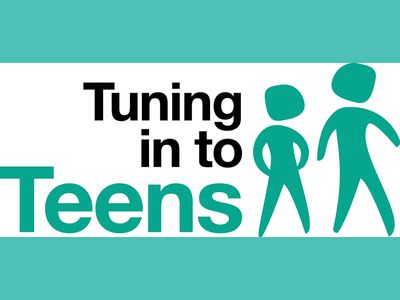
Tuning in to Teens
Six sessions between 7 August and 11 September
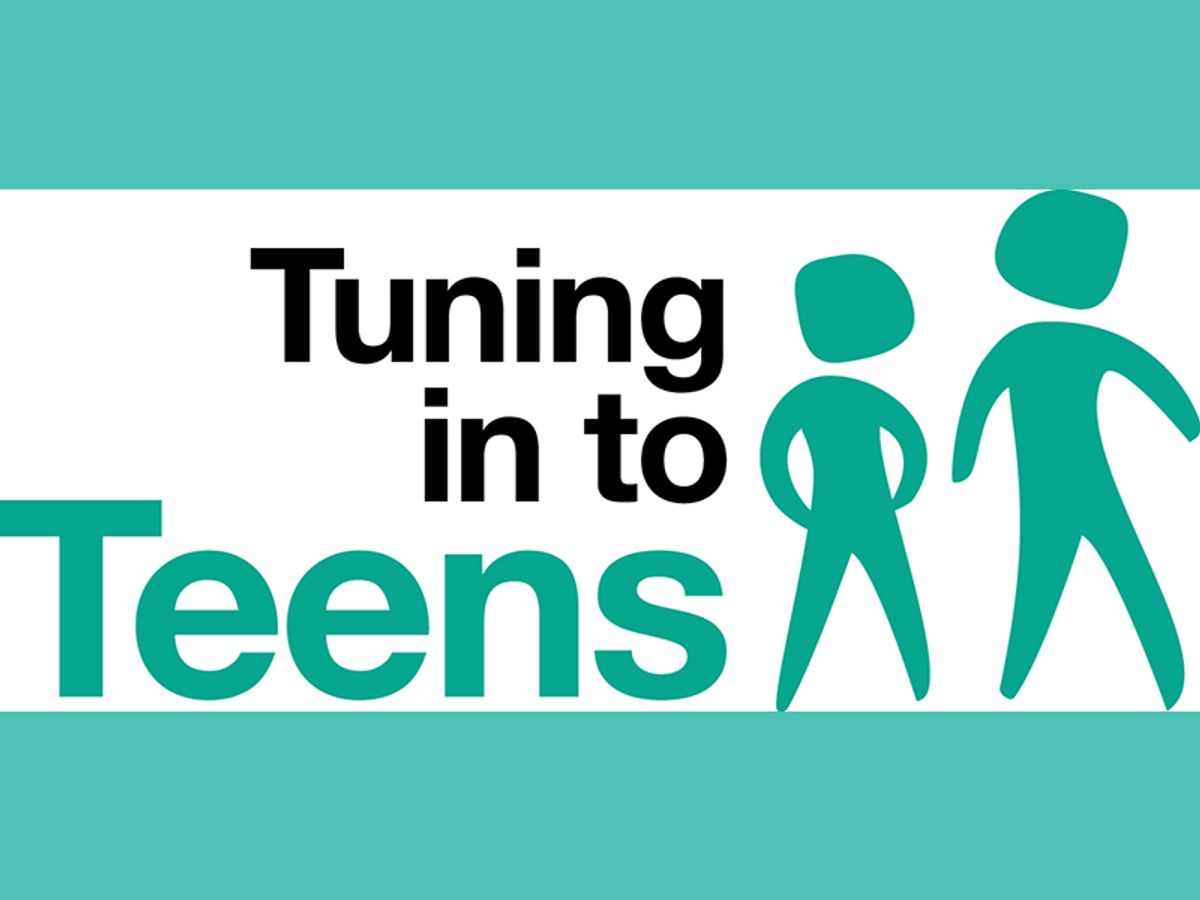
Tuning in to Teens
Share this articleThe Radford well-being team warmly invites you to join us on a journey in parenting via the Tuning in to Teens parenting program. Commencing on 7 August and concluding on 11 September, these 6 sessions will take place on Thursdays from 4:00-6:00 pm on campus.
Tuning in to Teens™ is an evidence-based program using the principles of emotional intelligence and emotional coaching to enhance parenting skills. Over the course of the 6 sessions, the program aims to equip parents with the tools to engage in meaningful conversations with their teens about emotions, fostering emotional intelligence and adept conflict management within the home.
This program works with the principle of emotional intelligence. Teens with higher emotional intelligence:
- Are more aware, assertive and stronger in situations with peer pressure.
- Have greater success with making friends and are more able to manage conflict with peers.
- Are more able to cope when upset or angry.
- Have fewer mental health and substance abuse difficulties .
- Have more stable and satisfying relationships as adults.
- Have greater career success. Emotional intelligence may be a better predictor of academic and career success than IQ.
The aim of the program is to teach parents about how they, as parents, can help their teenagers develop good emotional skills. For example:
- Awareness of what emotions their teen is experiencing.
- To view their teen’s emotions as opportunity to connect with them and guide them.
- Helping their teen identify and describe what they are feeling.
- Learning to listen to their teen’s problems without judgement.
- Strengthening theirs and their teen’s problem-solving skills and skills to cope with boundaries and limitations.
This program is offered to parents with a student in Years 7 to 12. Participants will be capped at approximately 12. If you wish to join us on this journey, please fill out the expression of interest form.
For further inquiries or to learn more about the program, reach out to our Tuning in to Teens facilitators:
- Ms Jacqueline Walker - jacqueline.walker@radford.act.edu.au
- Ms Gretel Burgess - gretel.burgess@radford.act.edu.au